25 Powerful Foods That Feed the Good Bacteria in Your Gut
Your gut is more than just a digestive system—it’s the command center of your overall health. Home to trillions of microbes, it influences everything from your immune response and metabolism to your energy levels and even your mood. When your gut is in balance, you feel it—better digestion, clearer thinking, and stronger resilience against illness. And one of the most powerful ways to support your gut microbiome? Your diet. That’s why we’ve expanded our list to 25 powerhouse foods that go beyond the basics to fuel good bacteria, nourish your system, and keep harmful microbes in check. From prebiotics and fiber-rich staples to fermented favorites, these foods are essential tools for anyone looking to improve digestion, support immunity, and unlock vibrant, whole-body health. Whether you're just beginning your gut health journey or fine-tuning your daily routine, this comprehensive guide has something to help you thrive from the inside out.
1. Garlic: The Microbiome Multiplier
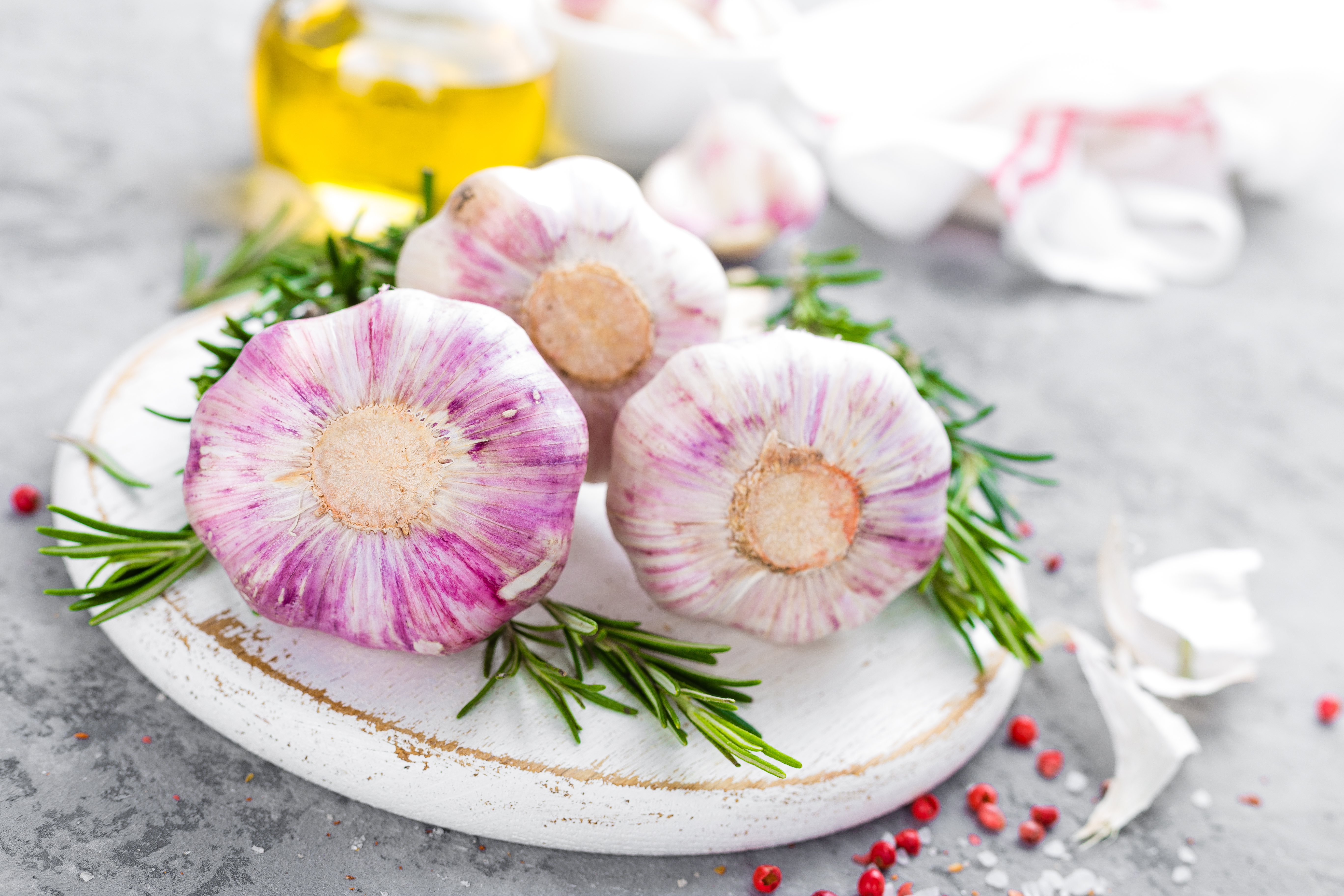
Garlic is one of the most powerful prebiotic foods, providing the gut microbiome with essential fuel to thrive. It contains inulin, a type of fiber that stimulates the growth of Lactobacillus and Bifidobacterium, two key bacterial strains that support digestion and immunity. Prebiotics like inulin help diversify gut flora, making the digestive system more resilient against harmful bacteria and imbalances. Beyond its role as a prebiotic, garlic is a potent antimicrobial and antifungal food, helping eliminate harmful pathogens while preserving beneficial bacteria. This dual action promotes gut balance and reduces inflammation, particularly in individuals suffering from digestive disorders like irritable bowel syndrome (IBS) or leaky gut syndrome. Studies suggest that regular garlic consumption can enhance digestion, boost immune function, and even reduce the risk of chronic disease. To get the most benefits, enjoy raw or lightly cooked garlic by adding it to soups, stir-fries, dressings, or roasted vegetables. Crushing or chopping garlic and letting it sit for a few minutes before cooking helps activate its gut-friendly sulfur compounds, maximizing its health benefits.
2. Onions: The Digestive Enhancer
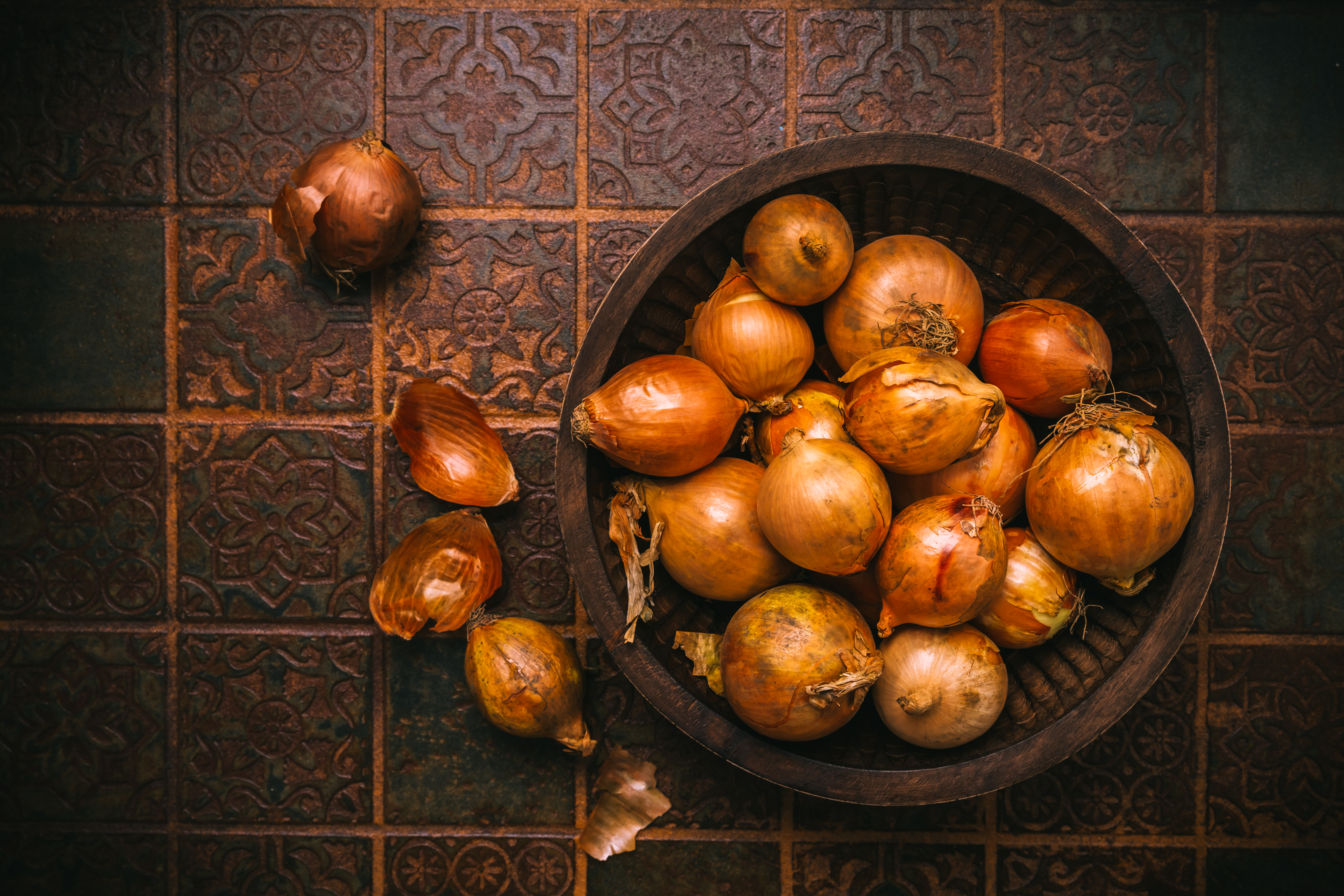
Onions are an incredibly rich source of prebiotic fiber, making them one of the best foods for feeding beneficial gut bacteria. They contain fructooligosaccharides (FOS), a specialized fiber that nourishes probiotic strains like Bifidobacteria, helping them thrive and outcompete harmful bacteria. FOS also enhances the production of short-chain fatty acids (SCFAs), which help maintain gut lining integrity, reduce inflammation, and promote overall digestive comfort. Onions also boast powerful antioxidants and flavonoids, particularly quercetin, which has been shown to reduce oxidative stress and support gut barrier function. This is especially beneficial for people who experience digestive discomfort, bloating, or food sensitivities, as onions help soothe the gut lining and promote regular digestion. For maximum gut-healing benefits, incorporate both raw and cooked onions into your diet. Raw onions contain higher concentrations of prebiotics, while cooked onions are easier to digest and still provide gut-friendly benefits. Add them to salads, stir-fries, soups, or roasted dishes to support gut balance and microbial diversity.
3. Asparagus: A Prebiotic Superfood
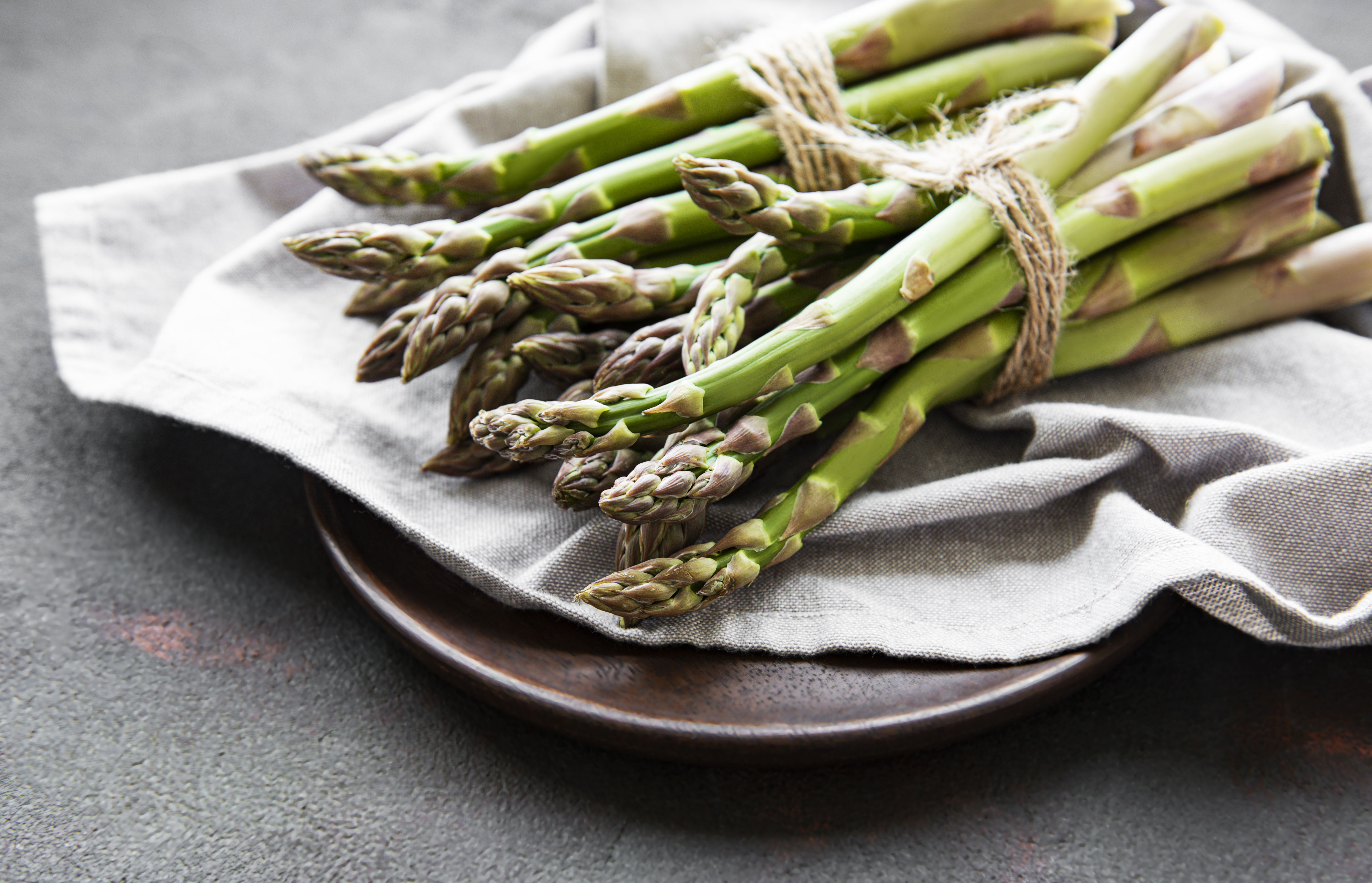
Asparagus is an underrated powerhouse for gut health, packed with inulin, a soluble fiber that acts as a prebiotic, selectively feeding beneficial bacteria like Lactobacillus and Bifidobacterium. The high fiber content of asparagus not only promotes gut microbiome diversity but also improves stool consistency and encourages regular bowel movements, making it an excellent food for those struggling with digestive irregularities. In addition to its prebiotic benefits, asparagus contains powerful antioxidants, vitamins, and anti-inflammatory compounds that help protect the gut lining and reduce oxidative stress in the digestive system. Research suggests that regularly consuming asparagus enhances gut motility, increases beneficial bacterial populations, and improves nutrient absorption. Asparagus is incredibly versatile and can be enjoyed in many different ways—try roasting, grilling, steaming, or sautéing it for a delicious, fiber-rich side dish. To preserve its prebiotic content, avoid overcooking, as prolonged heat exposure can break down beneficial fibers. Adding asparagus to stir-fries, salads, or omelets is an easy way to maximize its gut-boosting potential.
4. Bananas: The Gentle Gut Balancer
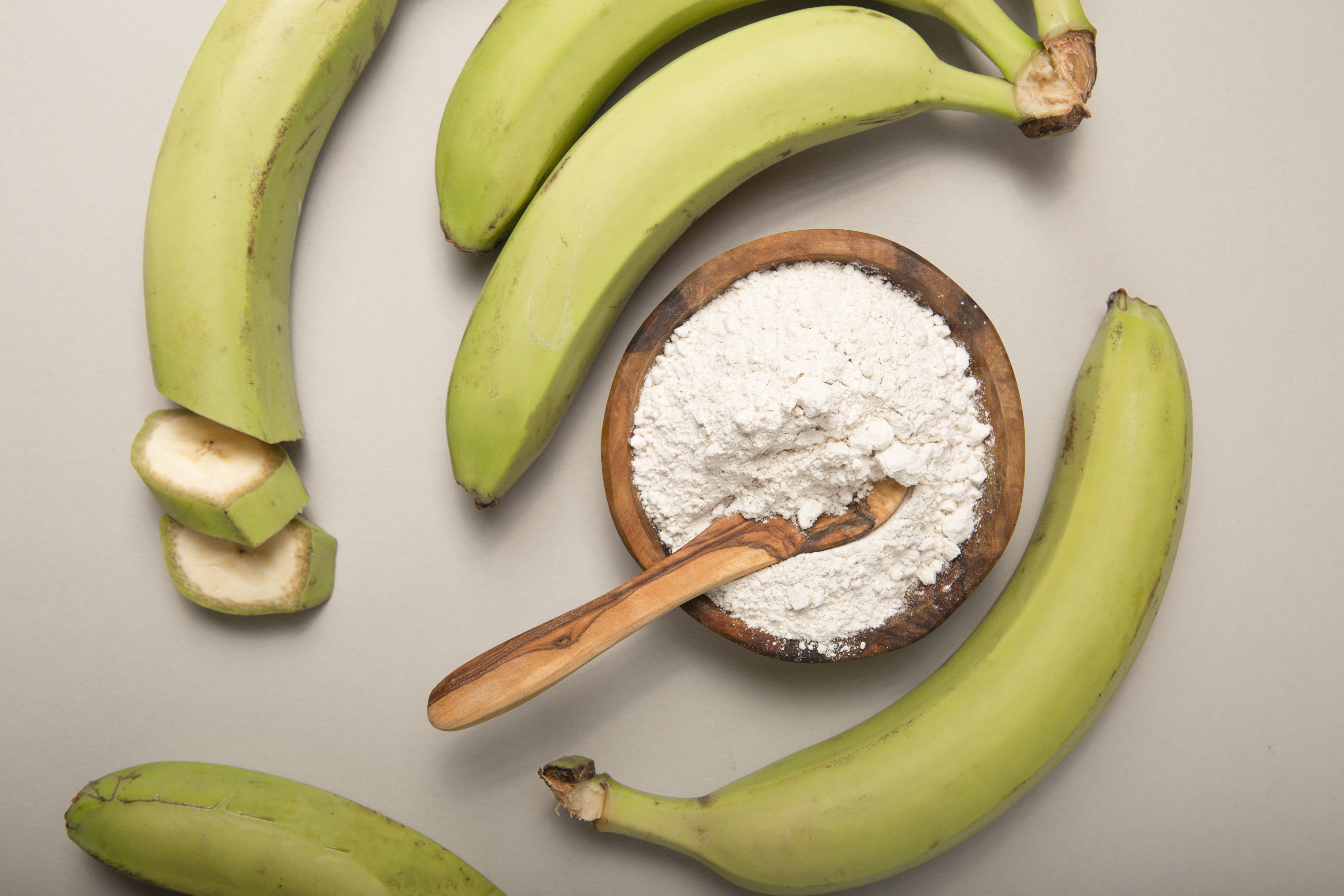
Bananas are a gut-friendly powerhouse, packed with fiber, prebiotics, and essential nutrients that soothe and support the digestive system. Their high content of resistant starch makes them an excellent prebiotic food, as resistant starch feeds beneficial bacteria while slowing down the digestion of sugars, promoting balanced blood sugar levels and sustained energy. Bananas also help regulate bowel movements, making them a great natural remedy for constipation and bloating. Their gentle, easily digestible nature makes them an ideal food for people recovering from digestive distress, as they help restore microbial balance and protect the gut lining. For maximum gut benefits, opt for slightly green bananas, as they contain higher levels of resistant starch and prebiotics. Ripe bananas, while still beneficial, contain more natural sugars, which are quickly absorbed by the body. Enjoy bananas on their own, blended into smoothies, sliced over yogurt, or mashed into oatmeal for a fiber-packed, gut-loving meal.
5. Apples: Fiber-Rich and Microbiome-Friendly
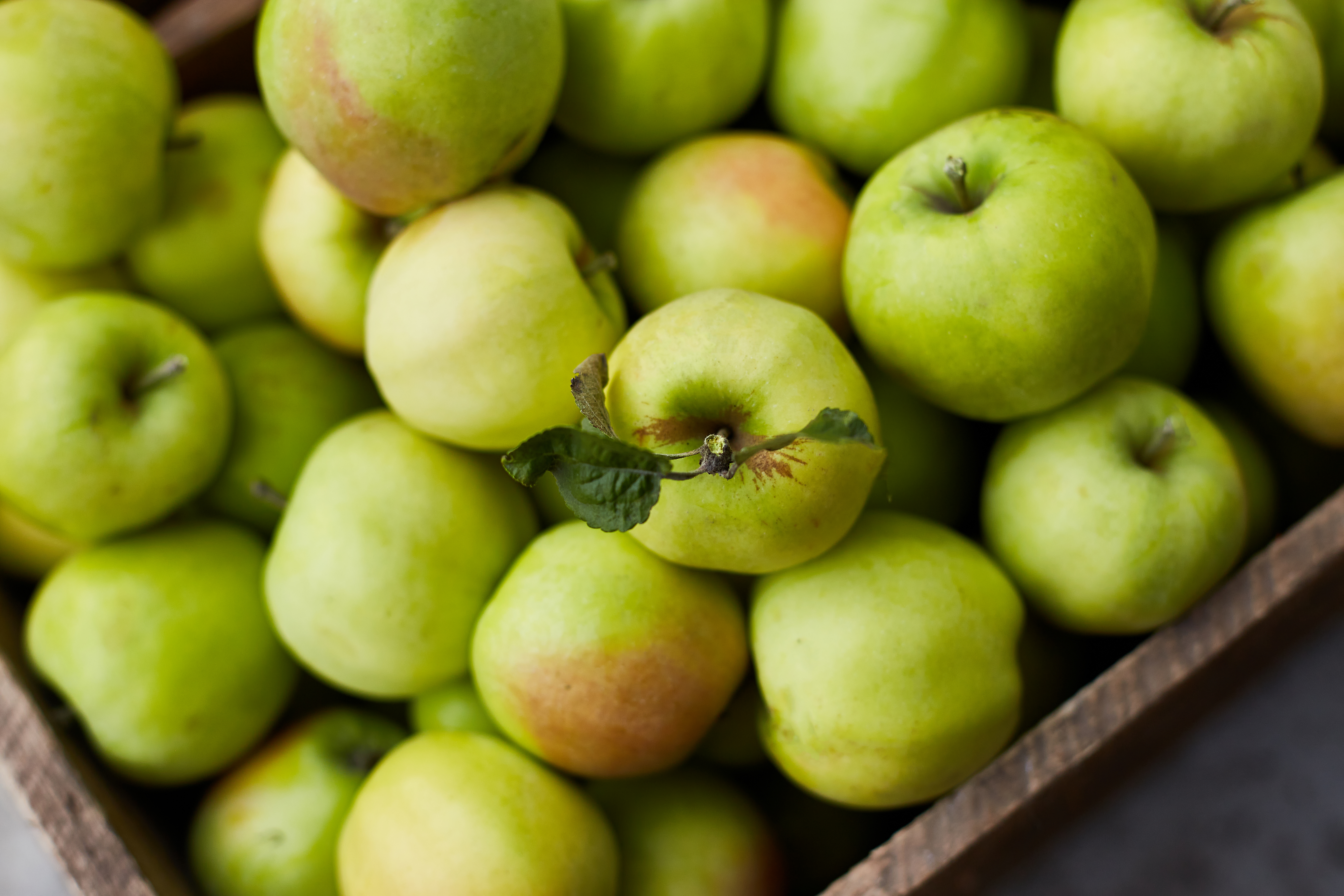
An apple a day may truly keep gut issues at bay, thanks to its impressive fiber and polyphenol content. Apples are packed with pectin, a type of soluble fiber that serves as a prebiotic, feeding beneficial gut bacteria and promoting microbial diversity. This fiber forms a gel-like substance in the gut, slowing digestion, improving nutrient absorption, and supporting regularity. Beyond its fiber content, apples are rich in antioxidants and polyphenols, compounds that help reduce inflammation in the gut and support a healthy gut lining. Research shows that pectin increases the levels of beneficial microbes like Bifidobacteria while reducing harmful bacteria, leading to a more balanced gut microbiome. Apples are one of the most versatile gut-friendly foods—enjoy them whole as a snack, sliced into salads, blended into smoothies, or stewed into a fiber-rich compote. For maximum gut health benefits, choose organic apples and leave the skin on, as much of the fiber and polyphenols are concentrated in the peel.
6. Oats: The Fiber Powerhouse
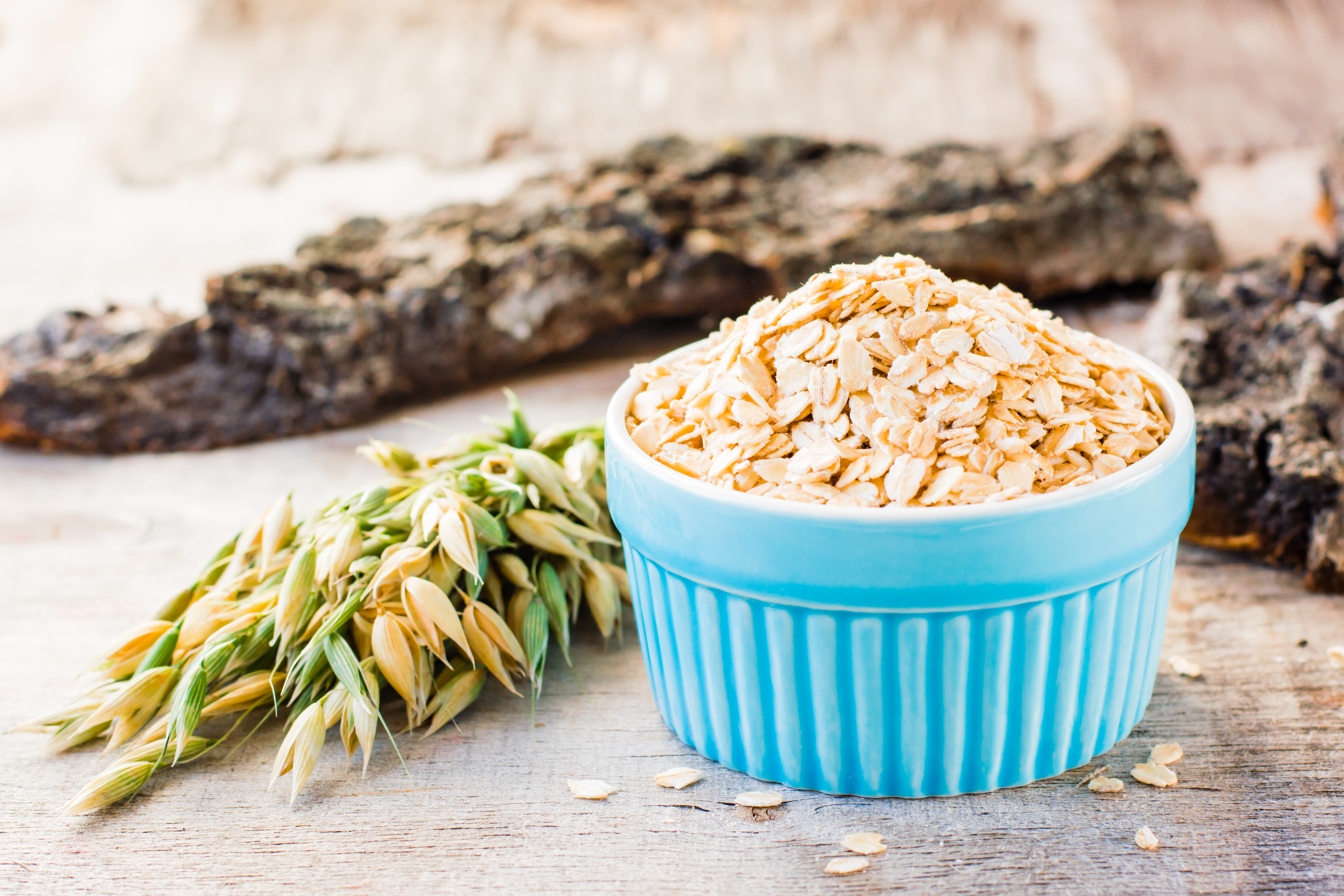
Oats are one of the best foods for gut health, providing a slow-digesting, prebiotic-rich source of fiber that supports gut bacteria, digestive regularity, and overall microbiome balance. They contain beta-glucan, a type of soluble fiber that acts as a prebiotic, feeding beneficial bacteria like Bifidobacteria and Lactobacillus. Beta-glucan has also been shown to reduce cholesterol, improve heart health, and enhance immune function, making oats a gut-friendly superfood. In addition to feeding good bacteria, oats help regulate digestion, stabilize blood sugar levels, and support gut motility, preventing constipation and promoting overall digestive health. Starting your morning with oatmeal, overnight oats, or oat-based smoothies provides long-lasting energy while delivering prebiotic benefits. For an extra microbiome boost, pair oats with fermented foods like yogurt, probiotic-rich kefir, or gut-friendly flaxseeds. Choosing steel-cut or rolled oats over highly processed instant oats ensures you get more fiber and gut-nourishing nutrients with every bite.
7. Flaxseeds: Tiny But Mighty
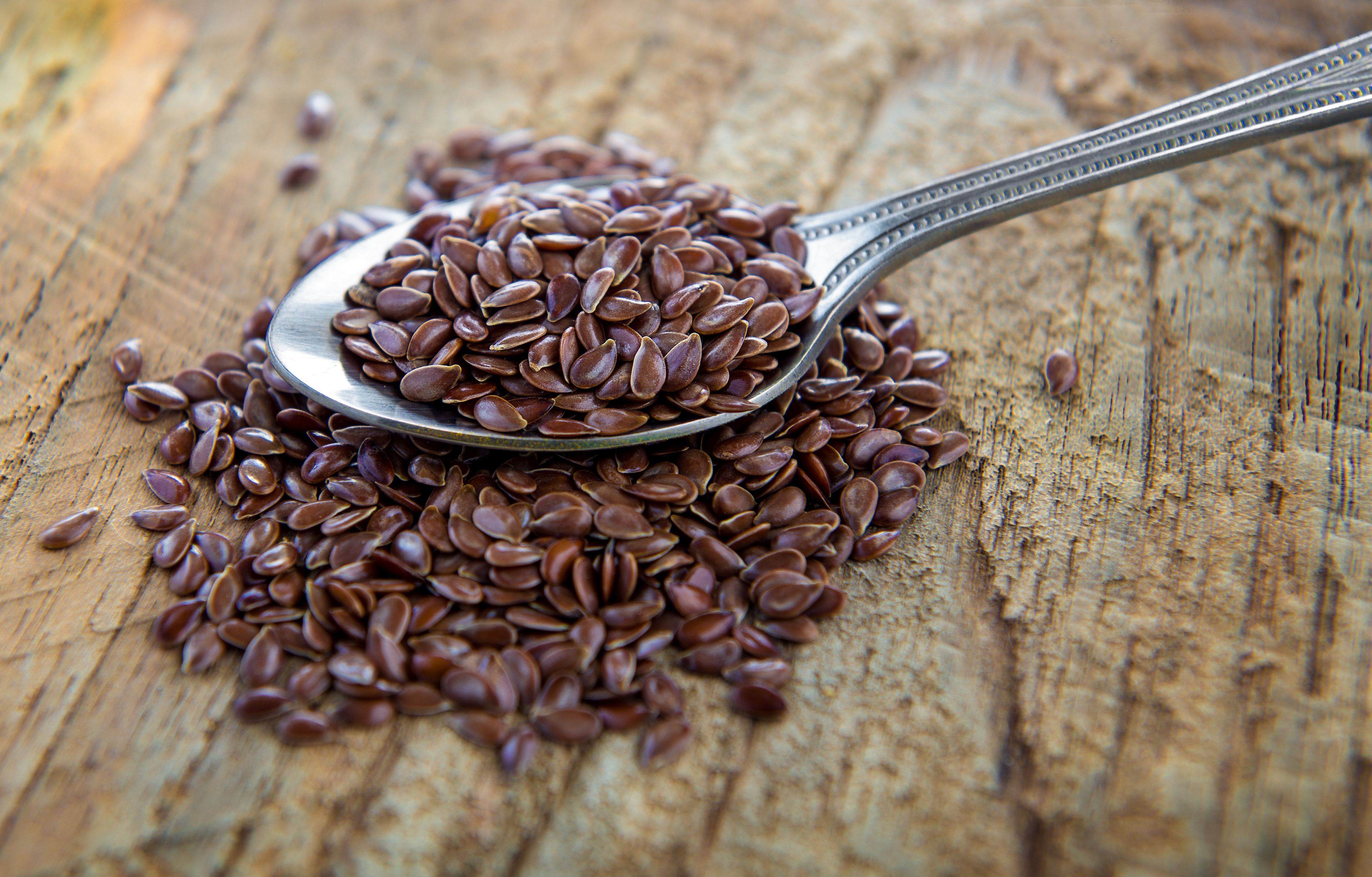
Flaxseeds may be small, but they pack a powerful punch when it comes to gut health. These tiny seeds are loaded with soluble and insoluble fiber, both of which support digestion, gut motility, and microbiome diversity. The soluble fiber in flaxseeds feeds beneficial bacteria, promoting the growth of gut-protective microbes like Bifidobacteria. Meanwhile, the insoluble fiber helps add bulk to stool, promoting regularity and preventing constipation. Flaxseeds are also an excellent plant-based source of omega-3 fatty acids, particularly alpha-linolenic acid (ALA), which has anti-inflammatory properties that protect the gut lining and reduce digestive discomfort. Studies suggest that flaxseeds may help regulate gut bacteria composition, leading to improved digestion and even a reduced risk of chronic inflammatory diseases. To get the most gut health benefits, opt for ground flaxseeds rather than whole seeds, as they are easier to digest and absorb. Add them to smoothies, yogurt, oatmeal, baked goods, or salad dressings for an easy way to incorporate this tiny but mighty gut-boosting superfood into your daily diet.
8. Almonds: Prebiotic and Probiotic Support
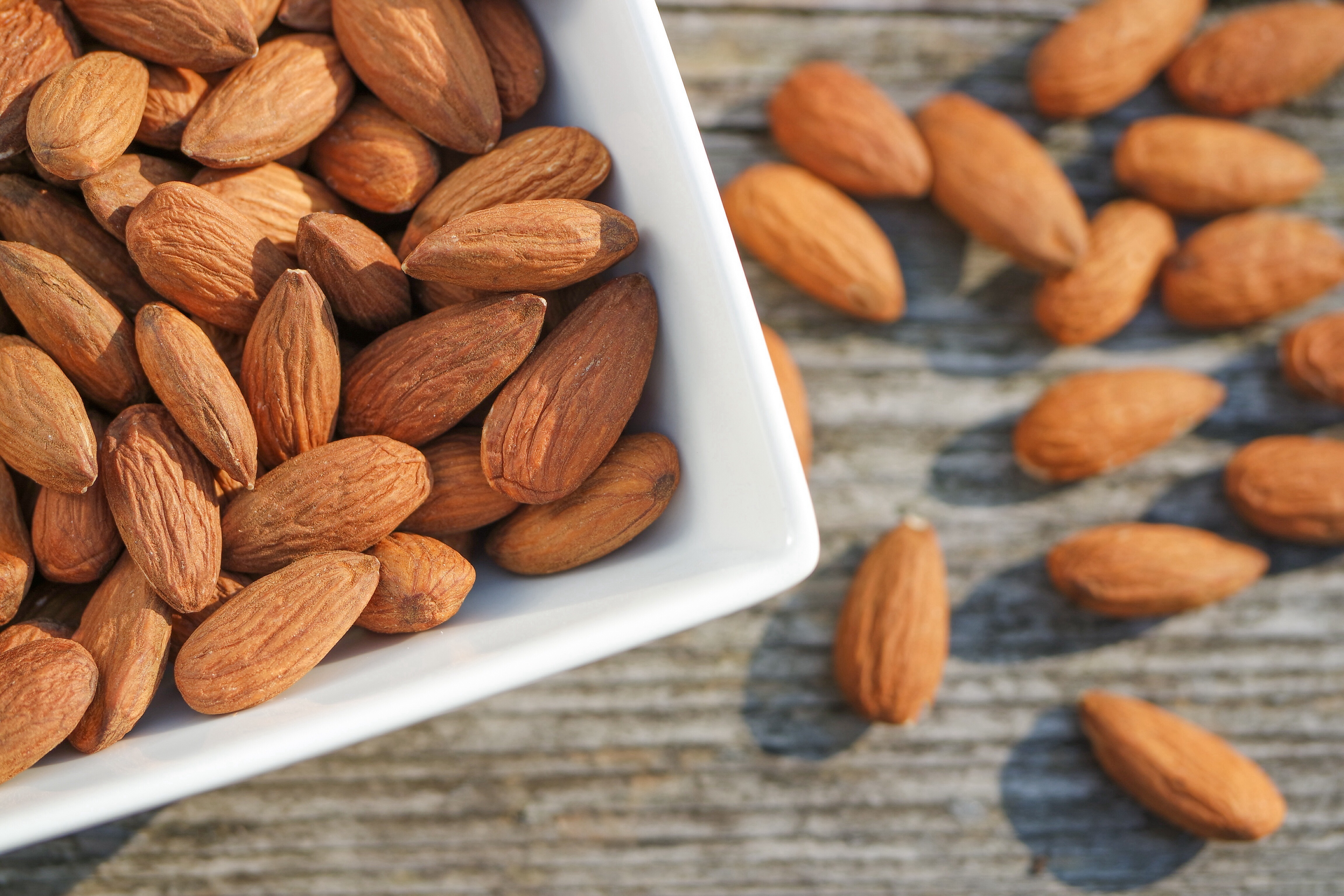
Almonds are more than just a delicious, protein-packed snack—they are also a powerful gut-health booster. These nutrient-dense nuts contain prebiotic fiber, which serves as fuel for beneficial gut bacteria like Bifidobacteria and Lactobacillus. This helps maintain a balanced microbiome, improves digestion, and enhances immune function. Research has shown that regular almond consumption increases levels of beneficial gut microbes, contributing to improved gut barrier integrity and better absorption of nutrients. Almonds are also rich in healthy monounsaturated fats, vitamin E, and polyphenols, which provide anti-inflammatory and antioxidant properties that support gut and overall health. For optimal digestion, consider eating raw or soaked almonds, as soaking reduces phytic acid, an anti-nutrient that can inhibit mineral absorption. Incorporate almonds into your diet by sprinkling them on salads, blending them into smoothies, or making homemade almond butter. A daily handful of almonds not only nourishes your microbiome but also supports heart health and brain function.
9. Sauerkraut: The Probiotic Powerhouse
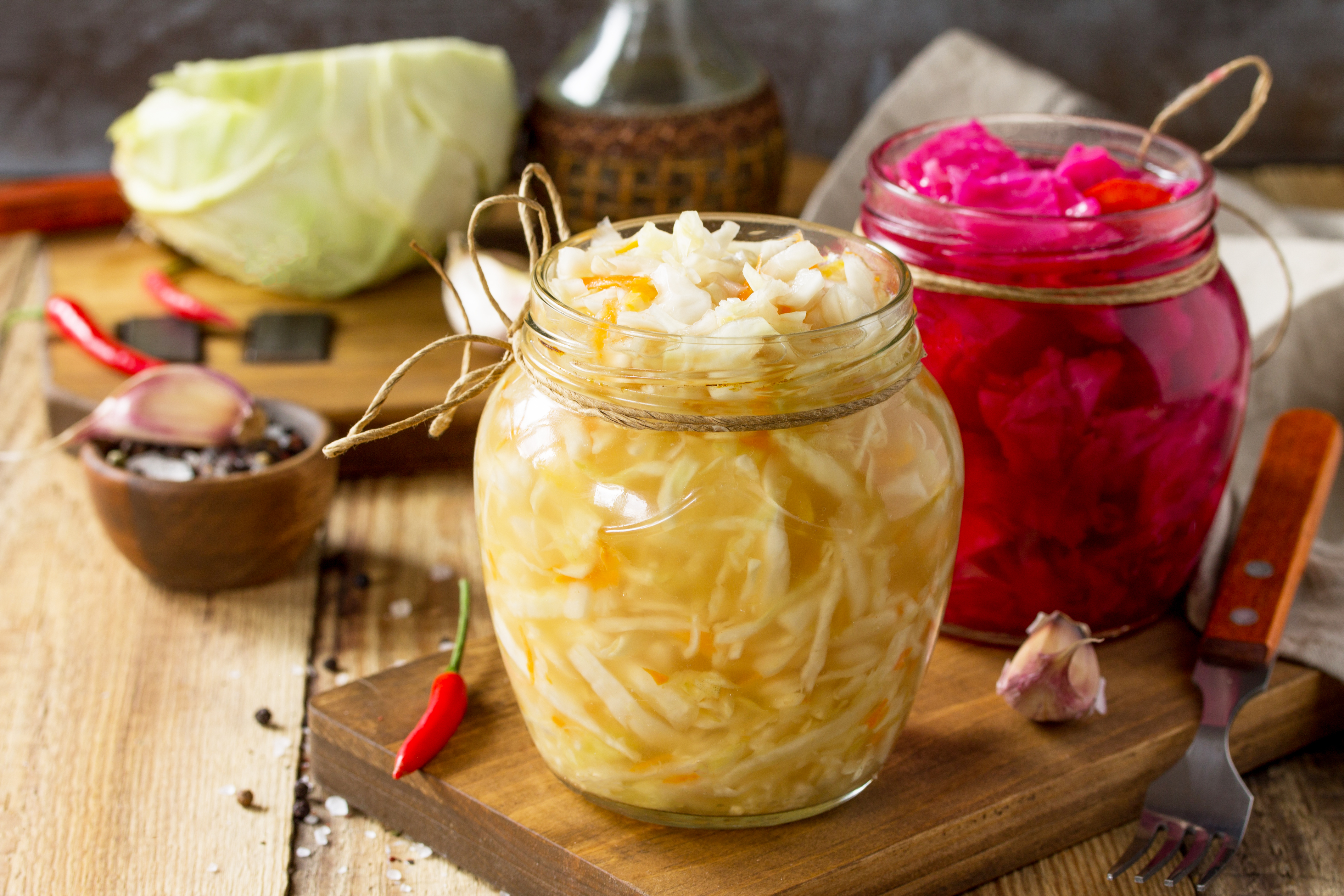
Sauerkraut, a fermented cabbage dish, is one of the best natural sources of probiotics and has been used for centuries to support gut health and digestion. The fermentation process encourages the growth of lactic acid bacteria, particularly Lactobacillus, which balances gut flora, improves digestion, and enhances nutrient absorption. Beyond its probiotic content, sauerkraut is also high in fiber, vitamin C, and antioxidants, which help reduce inflammation, strengthen the gut barrier, and support immune function. Unlike commercially processed varieties, which are often pasteurized and stripped of beneficial bacteria, raw, unpasteurized sauerkraut contains live probiotics that actively promote gut health. Regular consumption of sauerkraut has been linked to better digestion, reduced bloating, and improved gut microbiome diversity. To maximize its benefits, choose fresh, raw sauerkraut from the refrigerated section and avoid canned or shelf-stable versions, as they often lack probiotics. Enjoy sauerkraut as a side dish, mixed into salads, added to sandwiches, or eaten straight from the jar for a tangy, gut-nourishing boost.
10. Kimchi: Spicy and Gut-Boosting
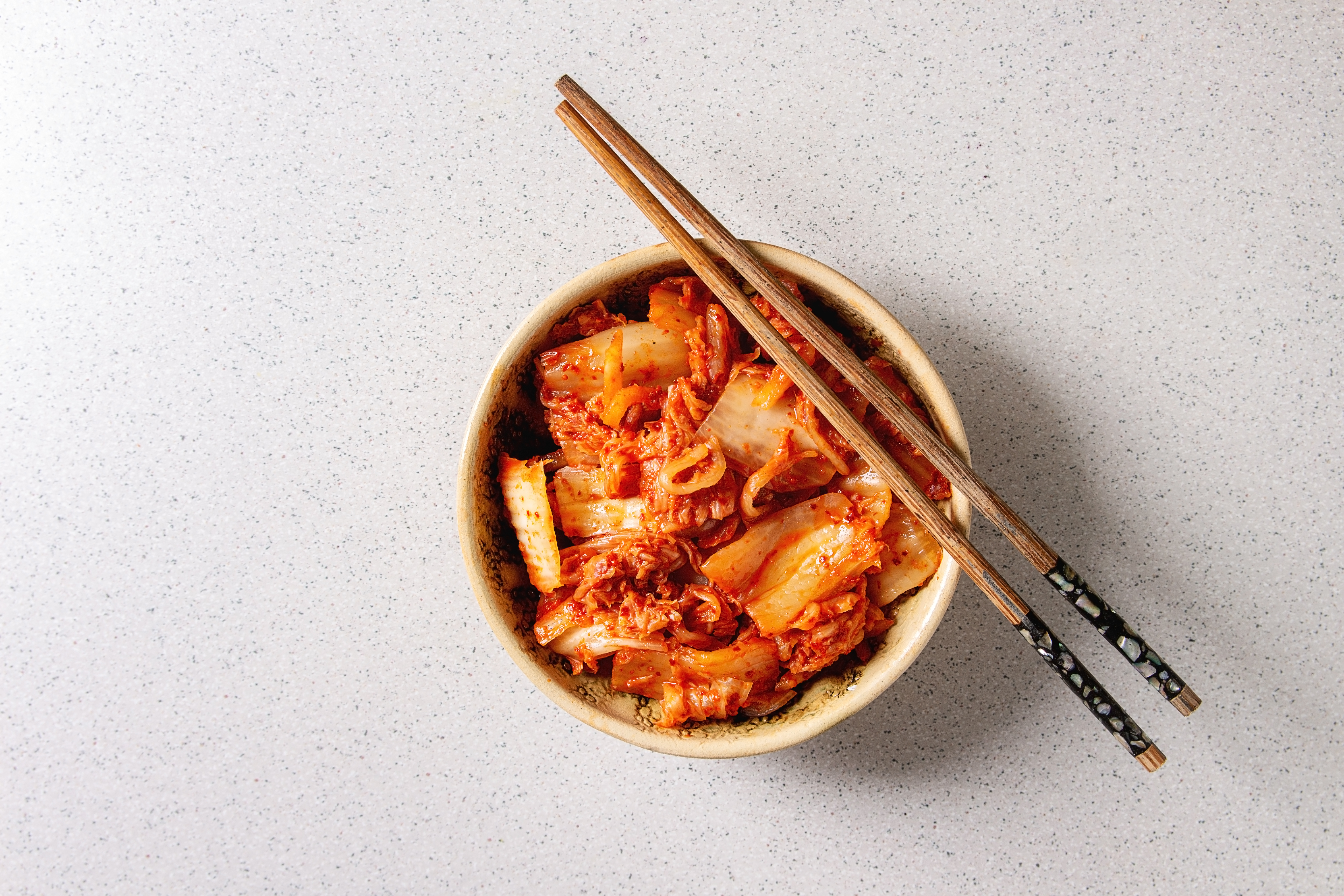
Kimchi, a traditional Korean fermented vegetable dish, is one of the most powerful probiotic foods you can add to your diet. Made primarily from cabbage, radishes, garlic, ginger, and chili peppers, kimchi undergoes a natural fermentation process that enhances its nutritional profile and gut-healing properties. This process encourages the growth of beneficial lactic acid bacteria, particularly Lactobacillus, which plays a crucial role in supporting digestion, balancing gut flora, and reducing inflammation. Beyond its probiotic benefits, kimchi is also packed with fiber, vitamins A and C, and antioxidants, making it a nutrient-dense addition to any meal. The natural compounds found in garlic and chili peppers further contribute to antimicrobial and anti-inflammatory effects, helping to fight off harmful gut bacteria while promoting the growth of beneficial microbes. Regular consumption of kimchi has been linked to improved gut microbiome diversity, enhanced immune function, and even better metabolic health. To maximize its benefits, opt for fresh, unpasteurized kimchi, as the heat involved in pasteurization can kill off beneficial bacteria. Enjoy it as a side dish, mix it into rice bowls, or use it as a topping for sandwiches and wraps to reap its gut-healing rewards.
11. Yogurt: The Classic Gut-Healer
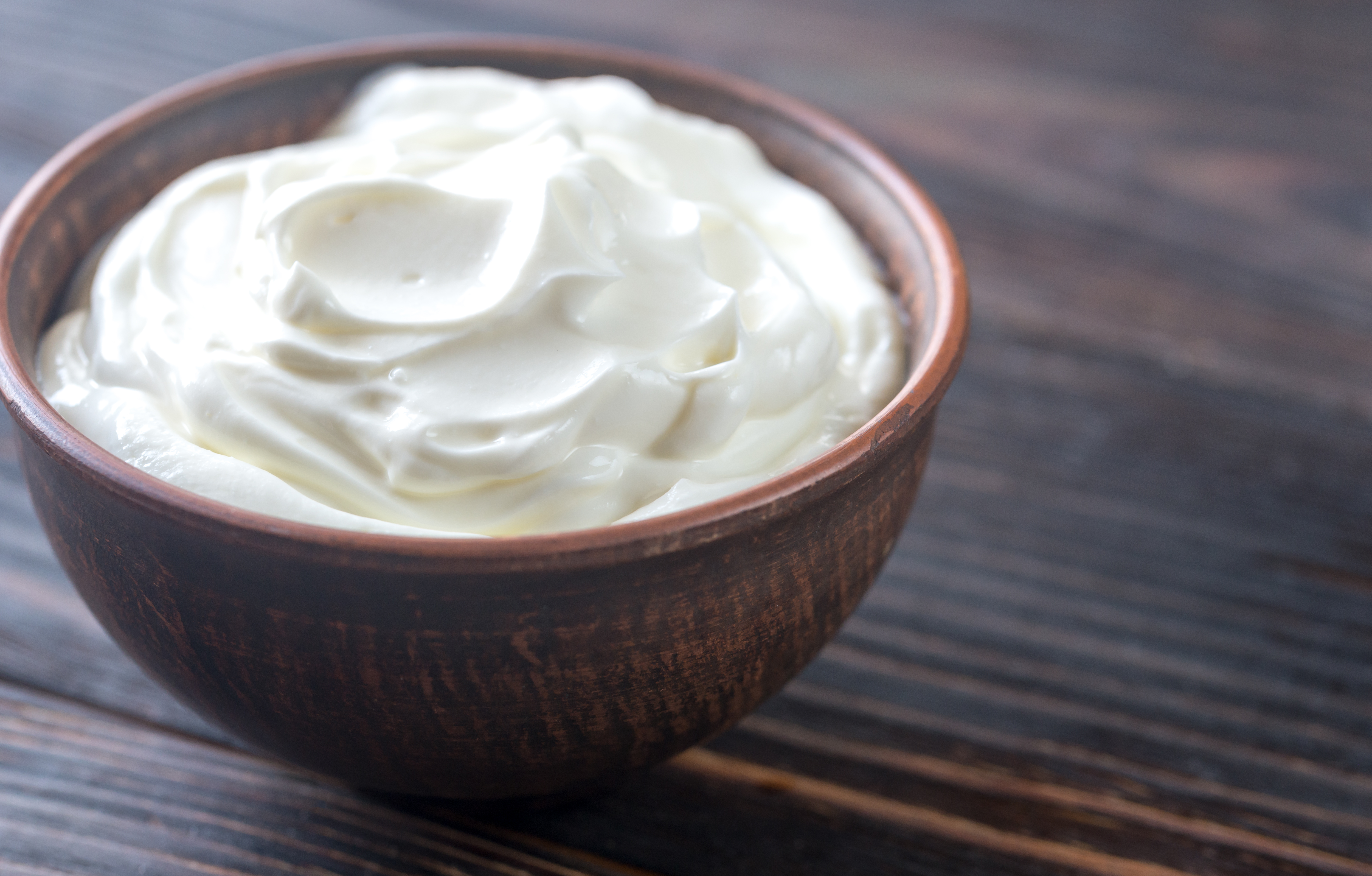
Yogurt has been a staple gut-health food for centuries, thanks to its rich probiotic content and nutrient density. Made by fermenting milk with live bacterial cultures, yogurt provides a natural source of Lactobacillus and Bifidobacterium, two of the most well-researched probiotic strains for digestive health. These beneficial bacteria help restore gut balance, support digestion, and enhance immune response by crowding out harmful microbes and promoting the production of gut-protective compounds. Beyond its probiotic benefits, yogurt is also an excellent source of protein, calcium, and essential vitamins like B12, making it an all-around health-promoting food. However, not all yogurts are created equal. Many commercial varieties are heavily processed, contain added sugars, and lack significant probiotic content. To get the most gut-friendly benefits, choose plain, unsweetened Greek yogurt with live and active cultures. Yogurt is incredibly versatile and can be incorporated into your diet in many ways. Enjoy it as a snack, in smoothies, as a base for salad dressings, or as a topping for oatmeal and granola. If you’re lactose-intolerant, consider trying dairy-free yogurt alternatives made from almond, coconut, or cashew milk, as these often contain similar beneficial bacterial strains. Adding fresh fruit, raw honey, or flaxseeds to your yogurt can further enhance its prebiotic and probiotic benefits, making it a complete gut-boosting meal.
12. Kefir: The Ultimate Gut Elixir
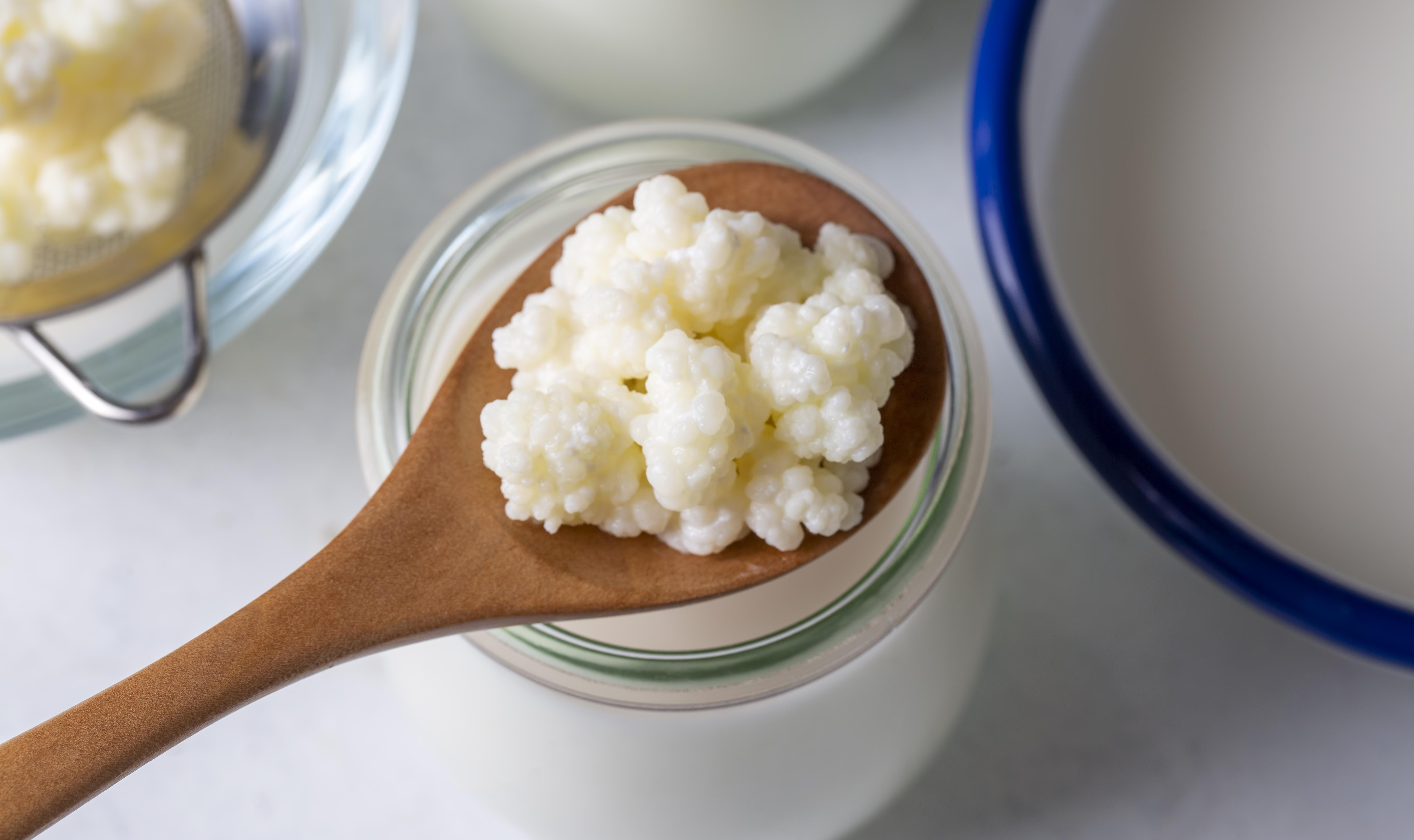
Kefir is a fermented dairy drink that contains an even greater diversity of probiotics than yogurt. This tangy, slightly effervescent beverage is made by fermenting milk with kefir grains, which consist of lactic acid bacteria, yeast cultures, and beneficial enzymes. Unlike yogurt, which typically contains only a few strains of probiotics, kefir boasts up to 30 different strains, making it one of the most potent probiotic foods for gut health. One of kefir’s most remarkable benefits is its low lactose content. Because the fermentation process breaks down much of the lactose found in milk, kefir is often well-tolerated by people who are lactose-intolerant. This makes it an excellent alternative to traditional dairy products for those looking to support their gut without discomfort. Regular consumption of kefir has been shown to improve digestion, reduce inflammation, enhance immune function, and even support mental health through the gut-brain connection. Enjoy kefir plain, blended into smoothies, or mixed with fruits and nuts for an easy, gut-friendly boost. For those avoiding dairy, coconut or water-based kefir is a great alternative that provides similar probiotic benefits.
13. Miso: The Fermented Soy Superfood
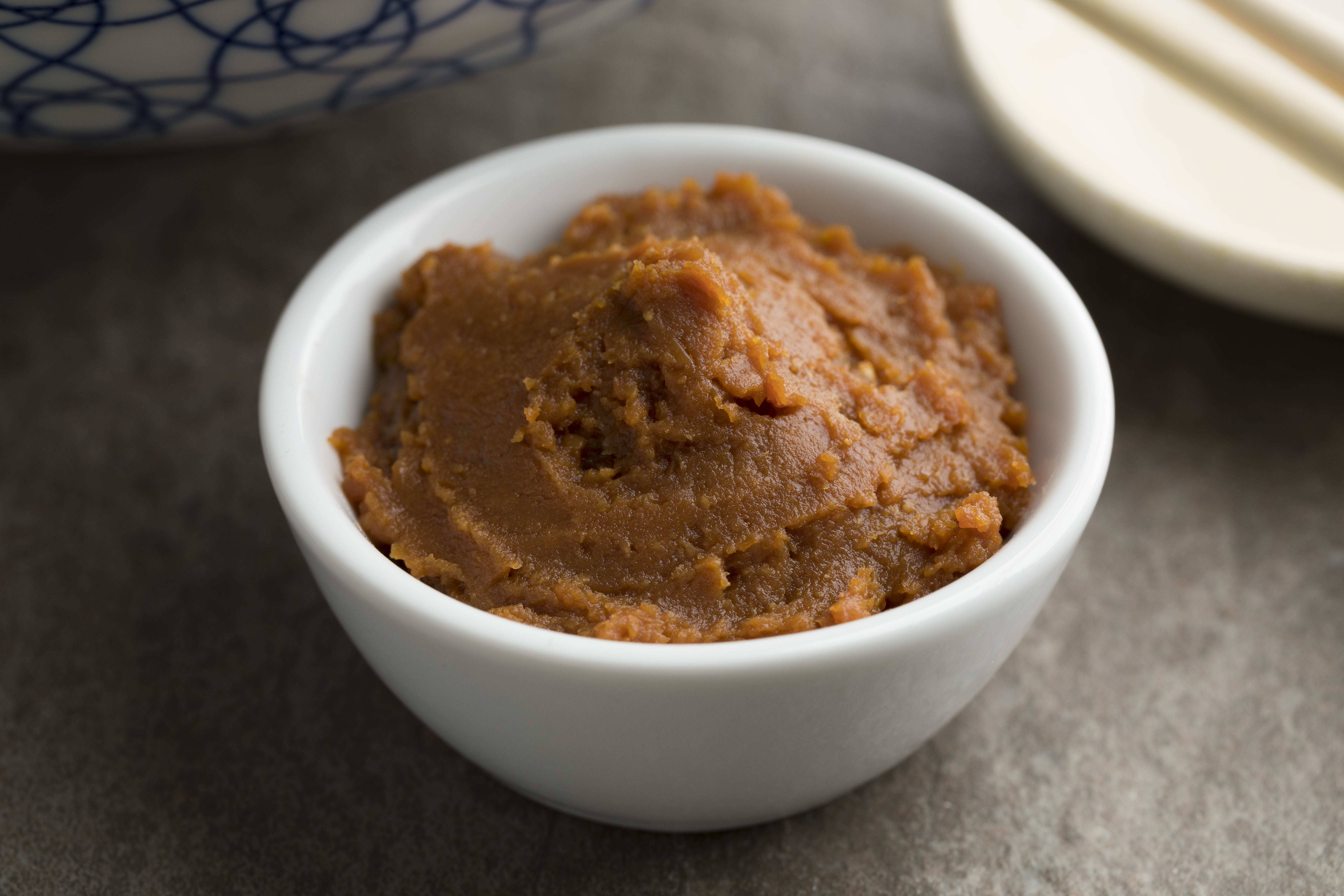
Miso, a fermented soybean paste, has been a cornerstone of Japanese cuisine and gut health for centuries. Made by fermenting soybeans with koji mold (Aspergillus oryzae), miso is rich in probiotics, enzymes, and antioxidants that work together to support digestion, strengthen the immune system, and balance gut flora. Unlike processed soy products, miso is naturally fermented, which enhances its nutrient bioavailability and digestibility. It contains B vitamins, essential minerals like zinc and manganese, and unique anti-inflammatory compounds that help protect the gut lining. One of the best ways to enjoy miso is in soups, salad dressings, marinades, or even as a seasoning for roasted vegetables. However, to preserve its probiotic benefits, it’s best to avoid boiling miso, as high temperatures can destroy beneficial bacteria. Instead, stir it into warm (but not hot) water or broth. Incorporating small amounts of miso into your diet regularly can help improve gut function, support immune health, and enhance overall digestion.
14. Dark Chocolate: A Delicious Prebiotic

Dark chocolate isn’t just a delicious treat—it’s also a powerful prebiotic food that can nourish beneficial gut bacteria. Rich in polyphenols (plant-based antioxidants), dark chocolate helps stimulate the growth of probiotic strains like Lactobacillus and Bifidobacterium, promoting a more diverse and resilient microbiome. Unlike highly processed milk chocolate, dark chocolate with at least 85% cocoa is packed with flavonoids and fiber, which act as prebiotic fuel for good bacteria. Research has shown that consuming moderate amounts of dark chocolate can reduce inflammation, support heart health, and even enhance brain function through the gut-brain axis. To maximize its gut-health benefits, opt for organic, minimally processed dark chocolate with no added artificial sugars or preservatives. Pairing dark chocolate with nuts, fresh berries, or yogurt can further enhance its prebiotic properties, making for a microbiome-boosting snack that satisfies your sweet cravings while supporting gut balance and digestion.
15. Green Tea: The Antioxidant Gut Healer

Green tea is one of the most well-researched beverages for gut health, thanks to its high concentration of polyphenols and catechins. These compounds promote beneficial gut bacteria while simultaneously reducing the presence of harmful microbes that can contribute to gut imbalances. Green tea is also known for its anti-inflammatory and immune-supporting properties, helping to soothe the gut lining, regulate digestion, and enhance metabolism. Studies suggest that regular green tea consumption can reduce gut inflammation, support fat metabolism, and even improve mental clarity through its interactions with the gut-brain axis. For maximum benefits, aim for one to two cups of green tea per day, and choose high-quality loose-leaf tea over highly processed tea bags, which may contain fewer beneficial compounds. If you prefer a creamier texture, matcha tea (a powdered form of green tea) provides an even more concentrated source of gut-boosting antioxidants. Adding a squeeze of lemon or a teaspoon of raw honey to your green tea can further enhance its prebiotic effects, making it a refreshing and healing drink for gut health.
16. Jerusalem Artichokes: The Inulin-Rich Root
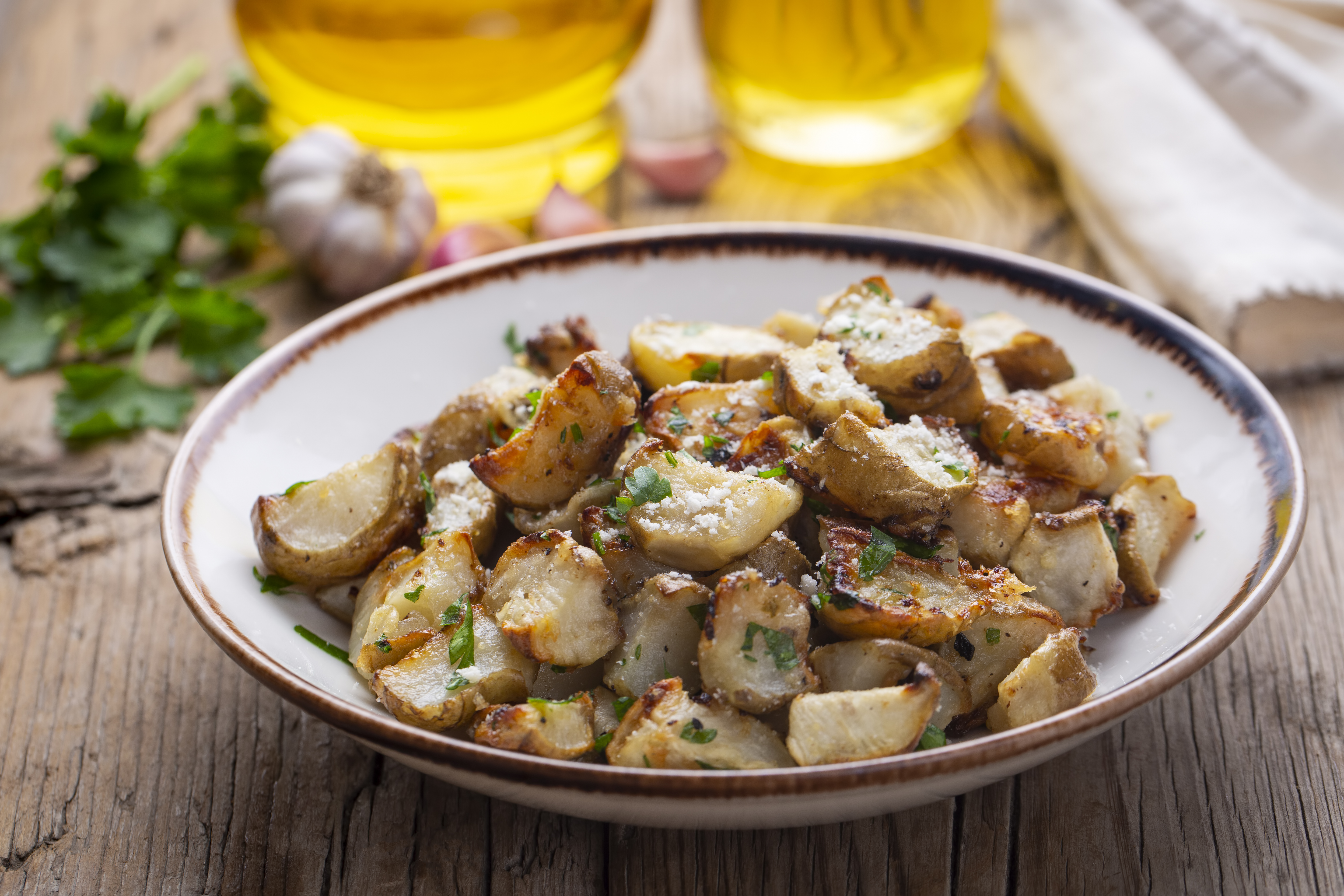
Often referred to as “sunchokes,” Jerusalem artichokes are one of the most concentrated sources of inulin—a type of soluble prebiotic fiber that acts as premium fuel for beneficial gut bacteria like Bifidobacteria and Lactobacillus. This earthy, nutty-tasting root vegetable doesn't just feed good microbes—it encourages a more diverse microbiome, which is key to robust digestion, immunity, and even mental clarity. Research suggests that regular intake of inulin-rich foods like Jerusalem artichokes can increase short-chain fatty acid production (especially butyrate), which reduces inflammation and strengthens the gut lining. Aside from inulin, Jerusalem artichokes are also rich in potassium, iron, and magnesium, which support electrolyte balance and metabolic function. However, their high fiber content can be intense for sensitive digestive systems—especially if eaten in large amounts or raw. Start with small servings and cook them well (roasting, steaming, or sautéing works beautifully) to enhance digestibility. They add a creamy texture and nutty flavor to soups, purees, grain bowls, or oven-roasted vegetable medleys. For adventurous home cooks, try thinly slicing and baking them into gut-friendly chips.
17. Seaweed: The Ocean’s Gut Guardian
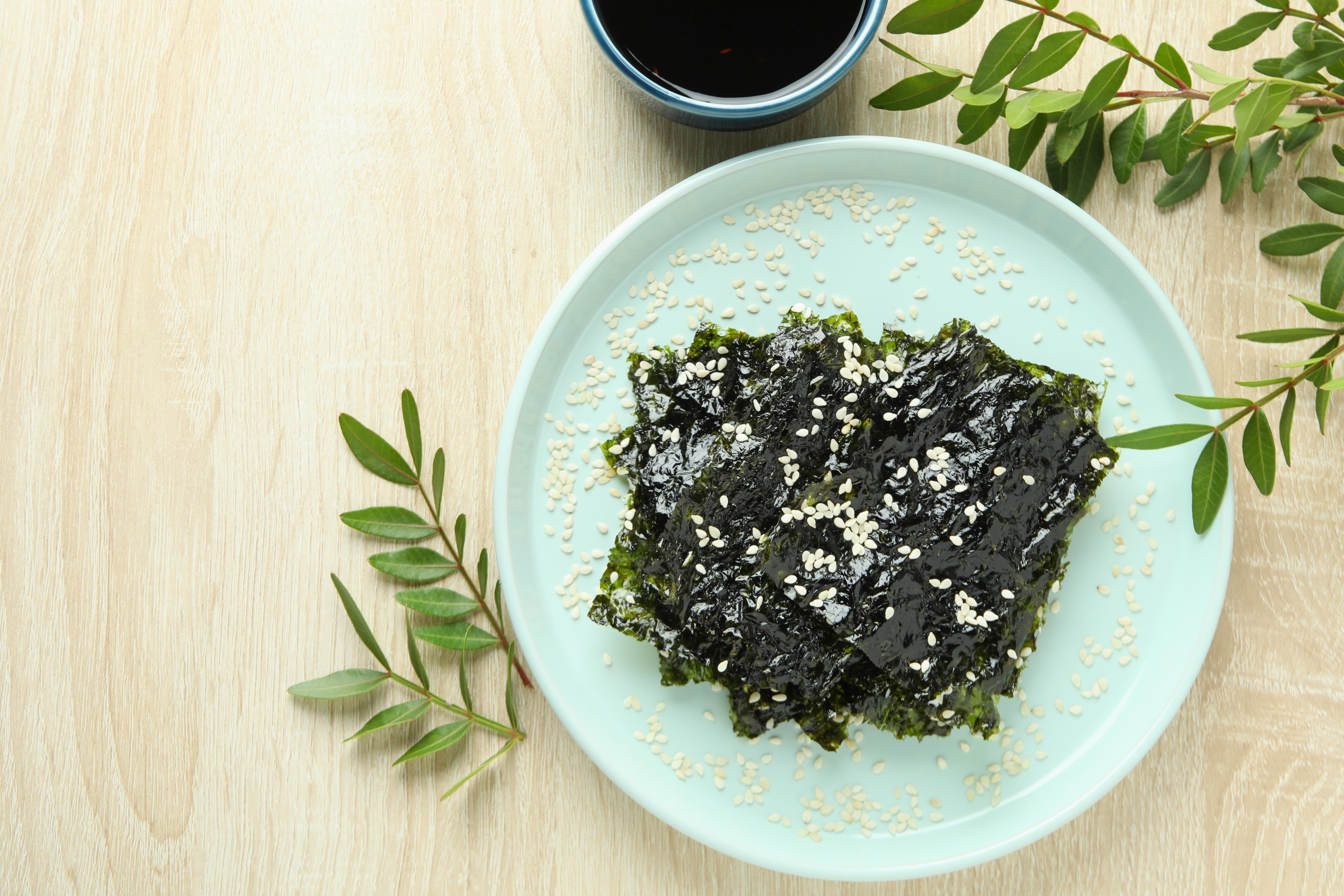
Seaweed is one of the most underrated gut-supporting superfoods, hailing straight from the sea. Rich in unique prebiotic fibers like alginate, laminarin, and fucoidan, seaweed fuels beneficial gut microbes and helps maintain a strong intestinal barrier. These complex polysaccharides aren't digested by our enzymes, but they’re eagerly consumed by gut bacteria, encouraging the growth of helpful strains like Bacteroidetes while suppressing harmful ones. The result? Better digestion, reduced inflammation, and a stronger gut-immune connection. In addition to its fiber, seaweed is loaded with trace minerals—especially iodine, iron, and magnesium—that support thyroid health, cellular repair, and energy metabolism. It’s also a potent source of antioxidants like phlorotannins, which help neutralize free radicals in the gut and reduce oxidative stress. Whether you prefer nori sheets, wakame in miso soup, or dulse flakes sprinkled on salads or avocado toast, incorporating seaweed into your meals can add depth of flavor and ocean-sourced nutrition. Try making seaweed salads with sesame oil and vinegar, adding kombu to broths for umami, or using dried varieties in smoothies for a hidden gut boost. Just be mindful of excess iodine intake—moderation is key.
18. Dandelion Greens: Bitter But Brilliant
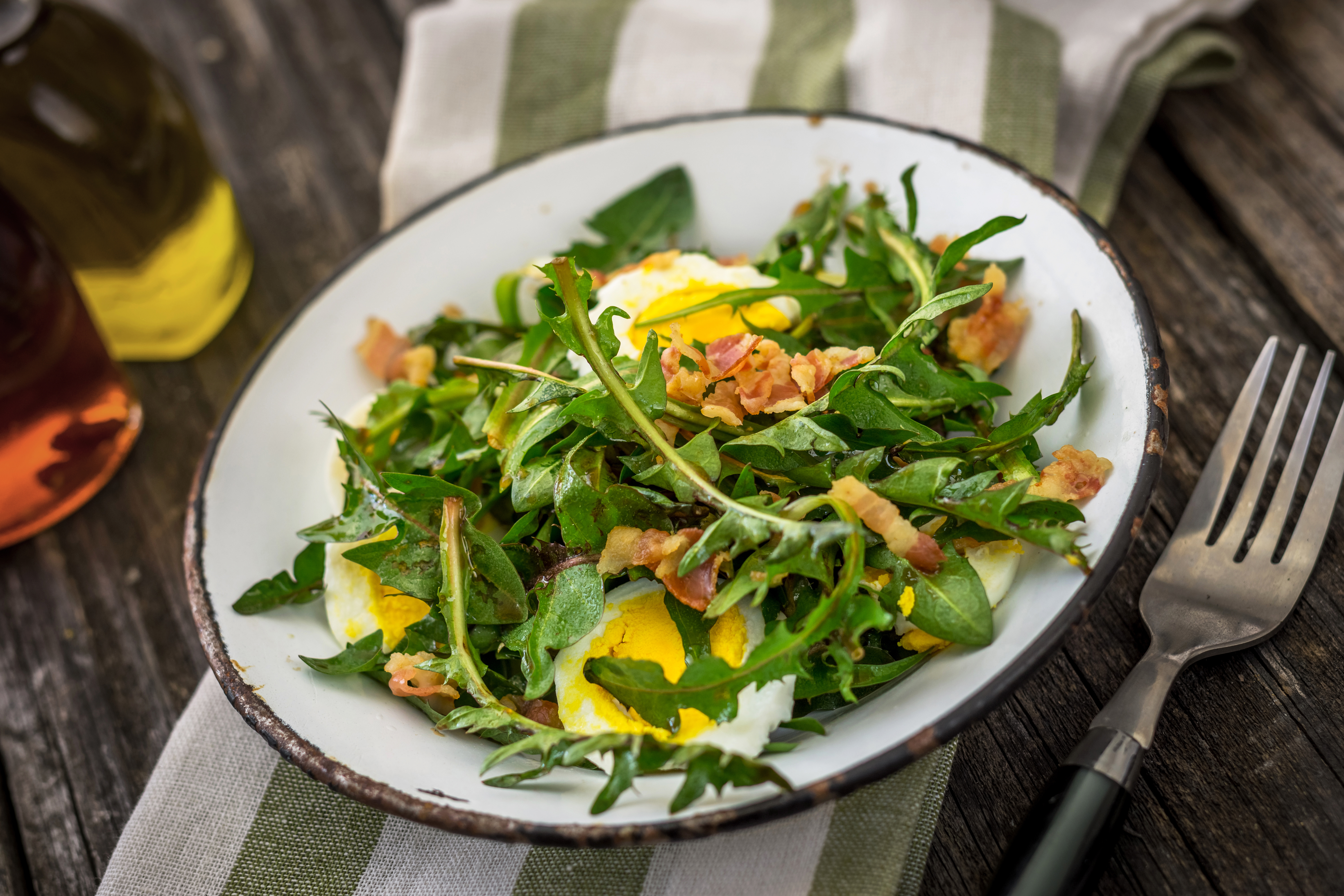
Dandelion greens may be a weed to some, but in the world of gut health, they’re a true treasure. These deeply bitter greens are packed with inulin—a powerful prebiotic fiber that selectively feeds beneficial bacteria like Bifidobacteria and helps maintain microbial balance. They also contain chicoric acid and other polyphenols that reduce gut inflammation, support liver detoxification, and enhance bile production—essential for digesting fats and flushing out toxins. The bitterness of dandelion greens stimulates digestive secretions, which helps “prime” the gut for efficient digestion and nutrient absorption. This makes them particularly helpful for those with sluggish digestion, bloating, or irregular bowel movements. They’re also rich in vitamin A, vitamin K, calcium, and iron, making them an all-around powerhouse for wellness. Use young, tender dandelion greens raw in salads with lemon juice or vinaigrette to cut the bitterness, or gently sauté them with garlic and olive oil for a softer flavor. Blending them into green juices or smoothies is another great way to get their benefits without overwhelming your taste buds. Incorporating them regularly helps reset digestion and encourages a healthier, more responsive gut environment.
19. Coconut Yogurt: A Dairy-Free Probiotic Dream
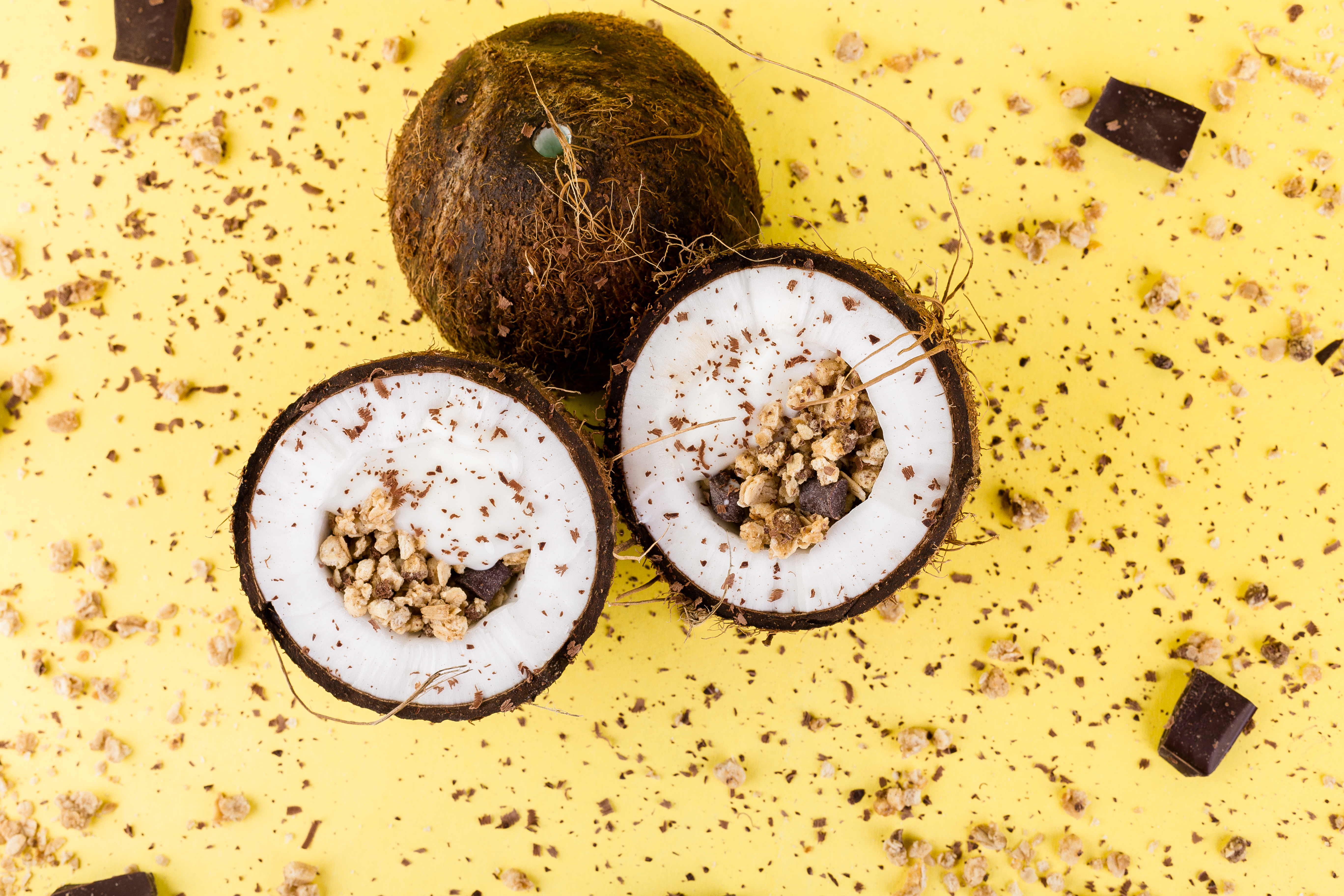
For those who can’t tolerate dairy, coconut yogurt offers a creamy, delicious, and gut-nourishing alternative that doesn’t skimp on benefits. Made by fermenting coconut milk with probiotic cultures, this dairy-free yogurt is rich in strains like Lactobacillus acidophilus, Lactobacillus plantarum, and Streptococcus thermophilus, all of which help restore balance to the gut microbiome. These live bacteria can ease symptoms of bloating, irregularity, and gut dysbiosis while also supporting immune function through the gut-associated lymphoid tissue (GALT). But the benefits don’t stop there—coconut itself contains medium-chain triglycerides (MCTs), particularly lauric acid, which has natural antimicrobial properties. This helps reduce harmful bacteria and yeast overgrowth in the gut without disrupting the delicate balance of beneficial microbes. Look for unsweetened coconut yogurts with "live and active cultures" on the label, and avoid those with added sugars or gums, which can negatively affect digestion. Add coconut yogurt to smoothies, top it with berries and flaxseeds for a gut-boosting breakfast, or use it as a base for creamy salad dressings and sauces. It’s a versatile, probiotic-rich food that fits beautifully into any gut-healing lifestyle.
20. Tempeh: Fermented Protein with a Punch
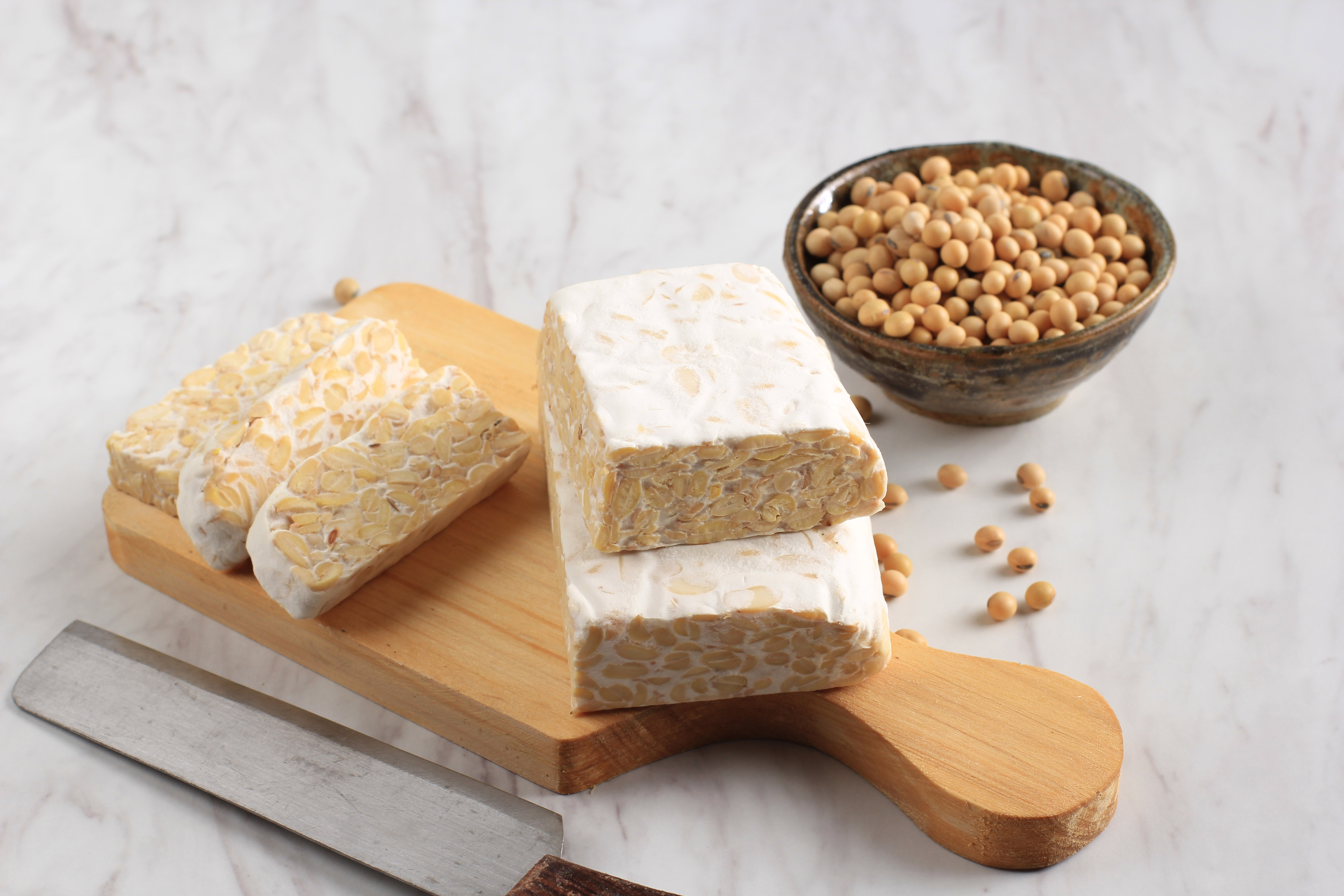
Tempeh is one of the most complete plant-based foods for gut health—it’s high in probiotics, rich in protein, and full of digestion-enhancing enzymes. Made from fermented soybeans, tempeh contains natural bacterial cultures like Rhizopus oligosporus, which not only improve the digestibility of soy but also contribute beneficial microbes to the gut. The fermentation process breaks down phytic acid, a natural anti-nutrient that can interfere with mineral absorption, making tempeh easier on the digestive system than many other soy products. Tempeh is also rich in fiber and isoflavones—plant compounds that have been linked to reduced inflammation and improved gut barrier function. Its firm texture and nutty flavor make it a satisfying meat alternative that’s incredibly versatile in the kitchen. Grill it for a smoky protein-packed entrée, crumble it into stir-fries or tacos, or marinate and pan-fry it for a crispy, savory snack. Because tempeh is fermented, it may also help increase the production of short-chain fatty acids (SCFAs) in the colon, which are essential for maintaining a healthy gut lining and reducing inflammation. If you’re looking to feed your gut and your muscles in one shot, tempeh is an ideal addition to your diet.
21. Kiwi: The Gentle Fiber Fix

Kiwi might be small, but when it comes to gut health, this vibrant green fruit delivers mighty benefits. It contains a unique enzyme called actinidin, which aids in the digestion of proteins—especially those from meat and dairy—making it a valuable digestive ally for heavy meals. But kiwi’s real superpower lies in its dual fiber content: it’s rich in both soluble and insoluble fiber. Soluble fiber feeds beneficial bacteria in the colon, while insoluble fiber adds bulk to stool and promotes smooth, regular bowel movements. Studies show that daily kiwi consumption can significantly improve bowel regularity and reduce bloating, particularly in people with irritable bowel syndrome (IBS) or chronic constipation. Additionally, kiwi is loaded with polyphenols and vitamin C, both of which help reduce inflammation and oxidative stress in the gut. For maximum benefits, eat the whole fruit—skin and all. The skin is edible and adds an extra dose of fiber and nutrients. Slice it into yogurt bowls, blend it into smoothies, or simply eat it as a snack for a naturally sweet and gut-supportive treat.
22. Fermented Pickles: Crunchy, Tangy, and Alive
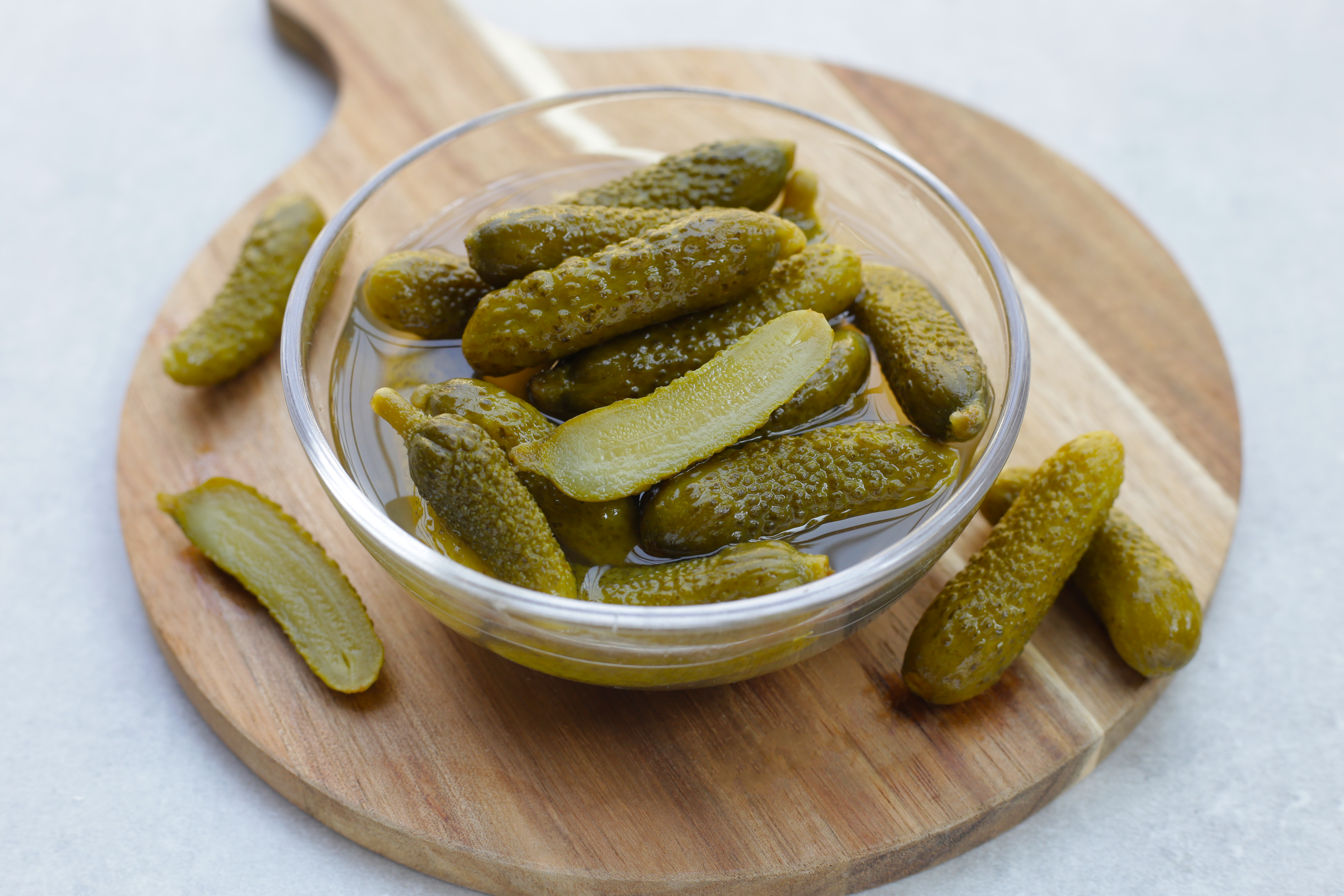
Not all pickles are created equal—when it comes to gut health, naturally fermented pickles are the real MVPs. Unlike their vinegar-brined counterparts, fermented pickles are made through a traditional process of lacto-fermentation, in which naturally occurring Lactobacillus bacteria convert the sugars in cucumbers into lactic acid. This not only preserves the pickles but fills them with live probiotic cultures that help restore microbial balance and support digestion. These crunchy, tangy treats are also rich in enzymes and electrolytes, which aid nutrient absorption and maintain hydration—especially important during illness or after antibiotic use. Fermented pickles can soothe an upset stomach, help reduce gas, and introduce a variety of helpful bacterial strains into your gut ecosystem. To ensure you're getting real probiotic benefits, look for pickles labeled “raw,” “fermented,” or “unpasteurized,” and find them in the refrigerated section—not on the shelf. Enjoy them on grain bowls, chopped into salads, alongside sandwiches, or straight from the jar as a zesty snack that supports digestion with every bite.
23. Barley: The Forgotten Fiber Grain
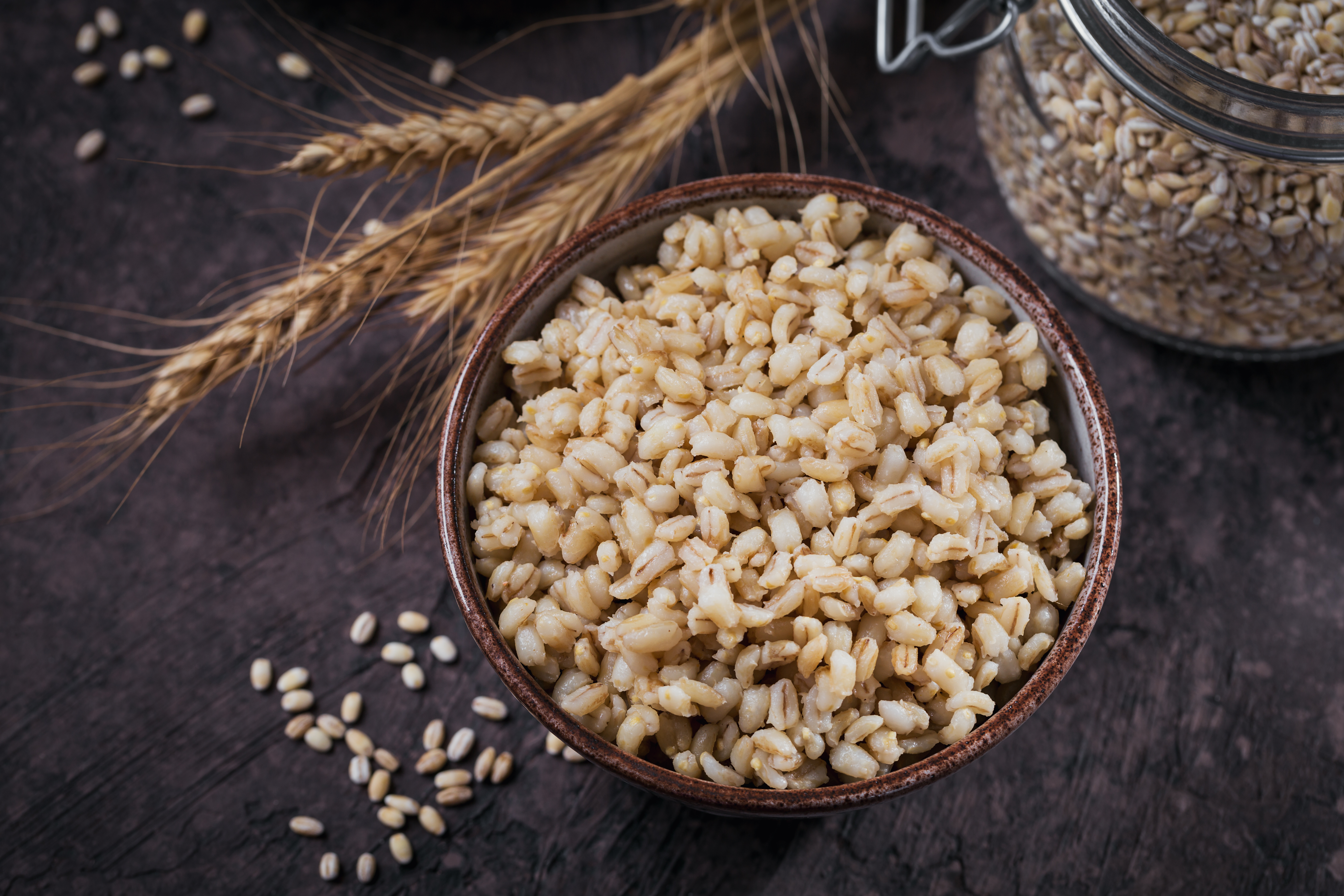
Barley may not have the flash of quinoa or the trendiness of oats, but it’s one of the most effective grains for gut health—and it’s long overdue for a comeback. Rich in beta-glucan, a type of soluble fiber, barley acts as a powerful prebiotic, fueling the growth of beneficial gut bacteria while helping to reduce LDL cholesterol and stabilize blood sugar levels. Beta-glucan also helps form a viscous gel in the gut that slows digestion and supports satiety, making barley excellent for digestive balance and weight management. Barley is also a source of resistant starch when cooked and cooled, providing further nourishment to your microbiome. Its chewy, nutty texture adds satisfying bulk to meals, and it pairs beautifully with vegetables, soups, and herbs. To maximize its fiber content and minimize processing, choose hulled barley or sprouted varieties over pearled. Cook it in bone broth for an extra gut-healing punch, toss it into tabbouleh-style salads, or enjoy it as a hearty base for veggie-loaded bowls.
24. Artichokes: The Fiber-Heavy Gut Helper
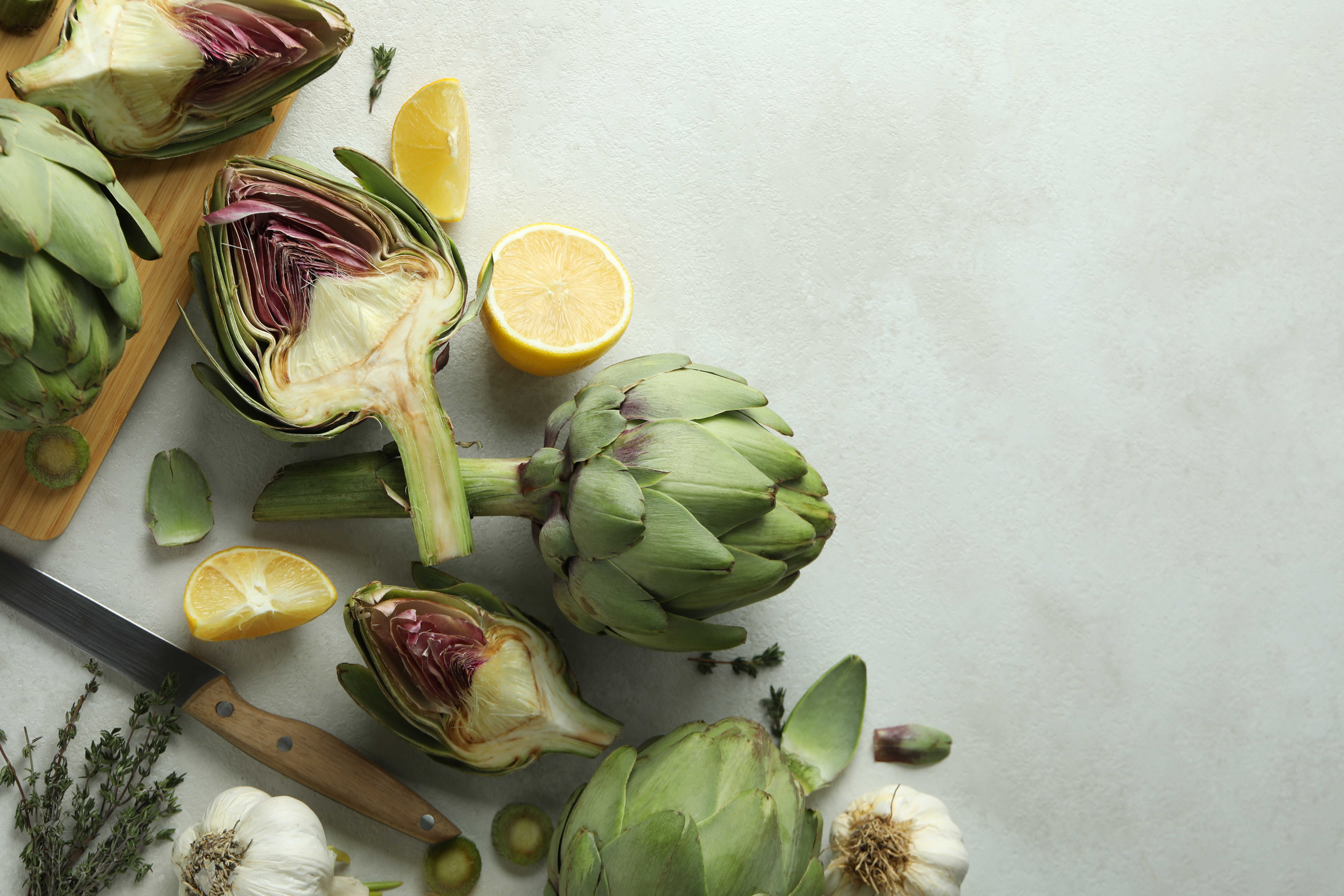
Artichokes are more than just a side dish—they’re one of the most fiber-dense vegetables you can eat, with particular benefits for your gut. Packed with inulin, a prebiotic fiber that nourishes helpful bacteria like Bifidobacteria, artichokes encourage microbial diversity and improved digestion. They’re also rich in cynarin, a compound that stimulates bile production from the liver, enhancing fat digestion and promoting detoxification. Regularly eating artichokes has been linked to reduced bloating, improved stool frequency, and better gut barrier function. Their high antioxidant levels, including quercetin and silymarin, help reduce inflammation in the digestive tract and support liver health—two often-overlooked aspects of digestive well-being. For gut-healing benefits, steam whole artichokes and enjoy them with lemon juice or olive oil, or add marinated hearts to salads, grain bowls, or pasta dishes. Pairing them with a healthy fat source boosts nutrient absorption and enhances their digestive benefits. Delicious, functional, and versatile, artichokes are a must-have for anyone looking to elevate their gut game.
25. Bone Broth: Gut Lining Repair in a Cup
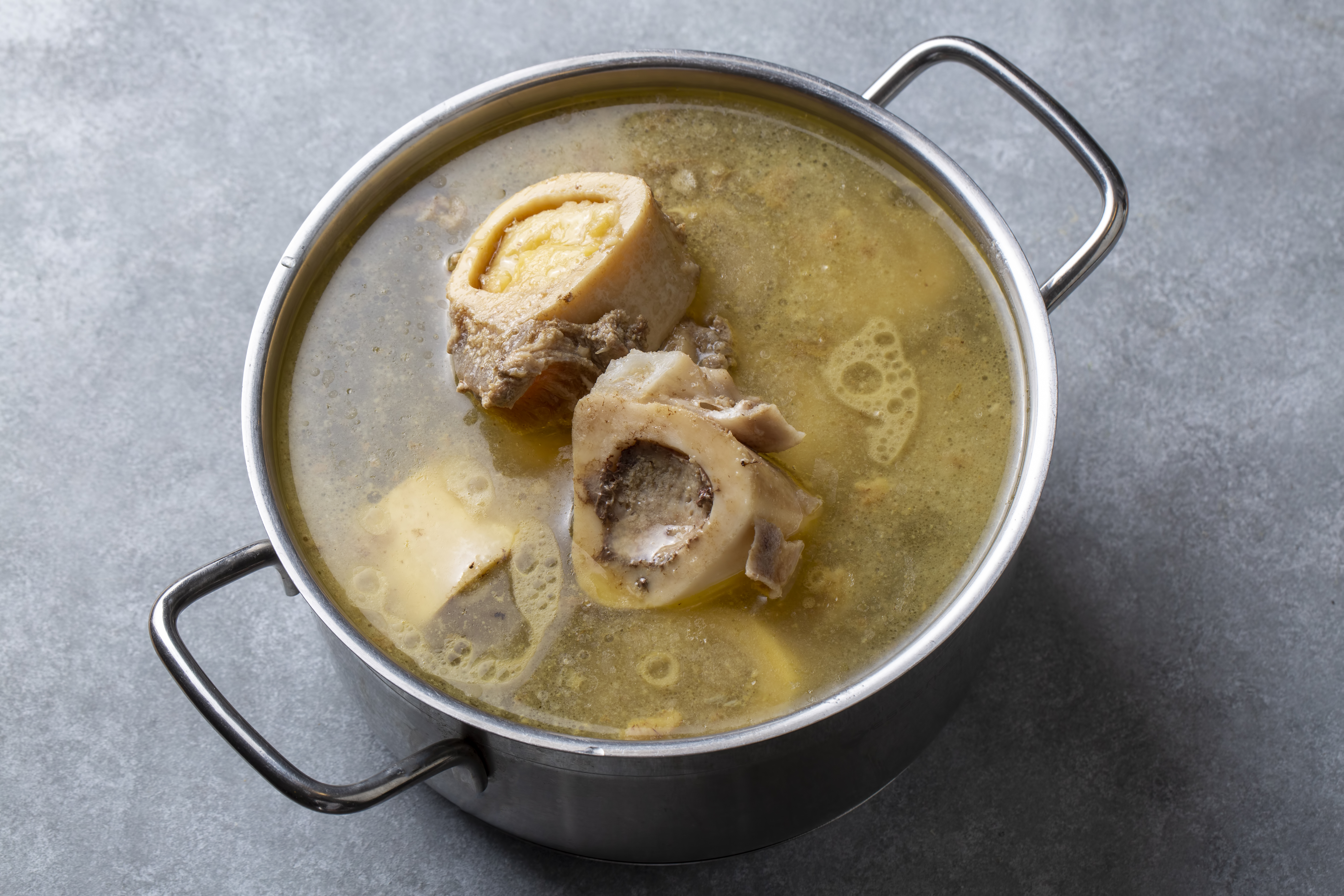
Bone broth has earned its reputation as a foundational food for gut health—and for good reason. Simmered over hours (or even days) from bones, cartilage, and connective tissue, bone broth is rich in gelatin, collagen, and amino acids like glutamine, glycine, and proline. These nutrients work synergistically to soothe inflammation, seal tiny gaps in the intestinal lining, and support the repair of damaged gut tissue—making bone broth especially helpful for people with leaky gut, IBS, or chronic bloating. In addition to its structural support for the gut, bone broth is easy to digest and naturally hydrating, providing electrolytes like potassium, sodium, and magnesium. It’s also a comforting, nutrient-rich option for those recovering from illness or transitioning to a gentler diet. You can sip it plain as a warm drink, use it as the base for soups and stews, cook grains and legumes in it, or blend it into savory smoothies for added protein and gut-healing power. To get the best quality, opt for homemade or grass-fed, organic store-bought versions with minimal ingredients and no preservatives.
Feed Your Gut, Fuel Your Health
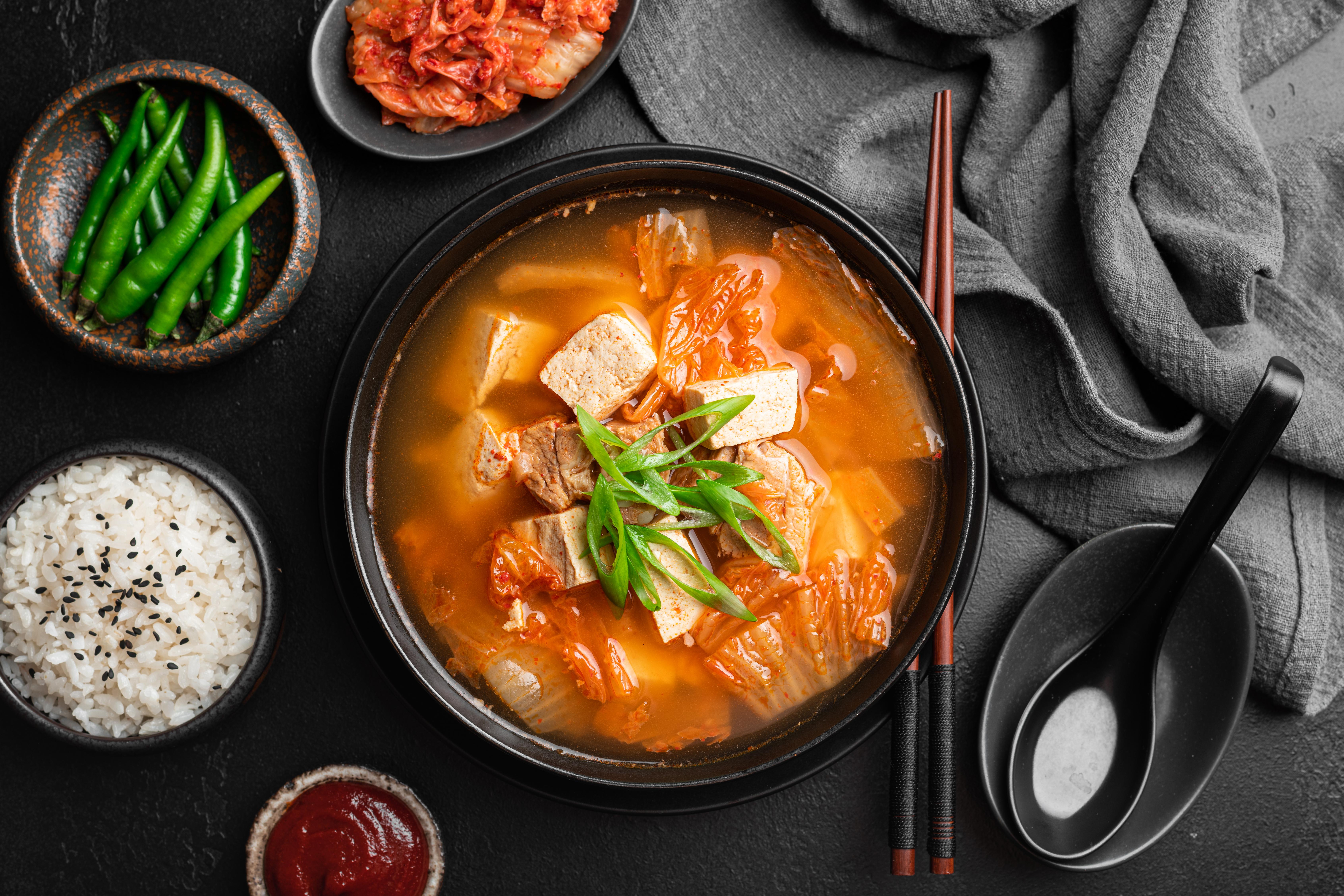
Your gut microbiome is the foundation of your health, influencing digestion, immunity, mood, metabolism, and even brain function. By nourishing it with fiber-rich, prebiotic, and antioxidant-packed foods, you provide beneficial bacteria with the fuel they need to thrive, creating a balanced, resilient gut environment. Incorporating garlic, onions, asparagus, and bananas into your daily meals is one of the simplest yet most effective ways to support digestive health, reduce inflammation, and optimize gut function. Each of these foods plays a unique role in feeding your microbiome, enhancing the diversity of good bacteria while keeping harmful microbes in check. Small changes in your diet can lead to profound improvements in your overall well-being. Whether you add a few extra cloves of garlic to your meals, toss onions into salads, roast asparagus for dinner, or snack on a banana, each bite is a step toward better digestion, stronger immunity, and improved energy levels. Your gut is constantly communicating with the rest of your body—what you eat determines how well it functions. Start feeding your microbiome the right way, and experience the benefits of better digestion, increased vitality, and long-term gut health.